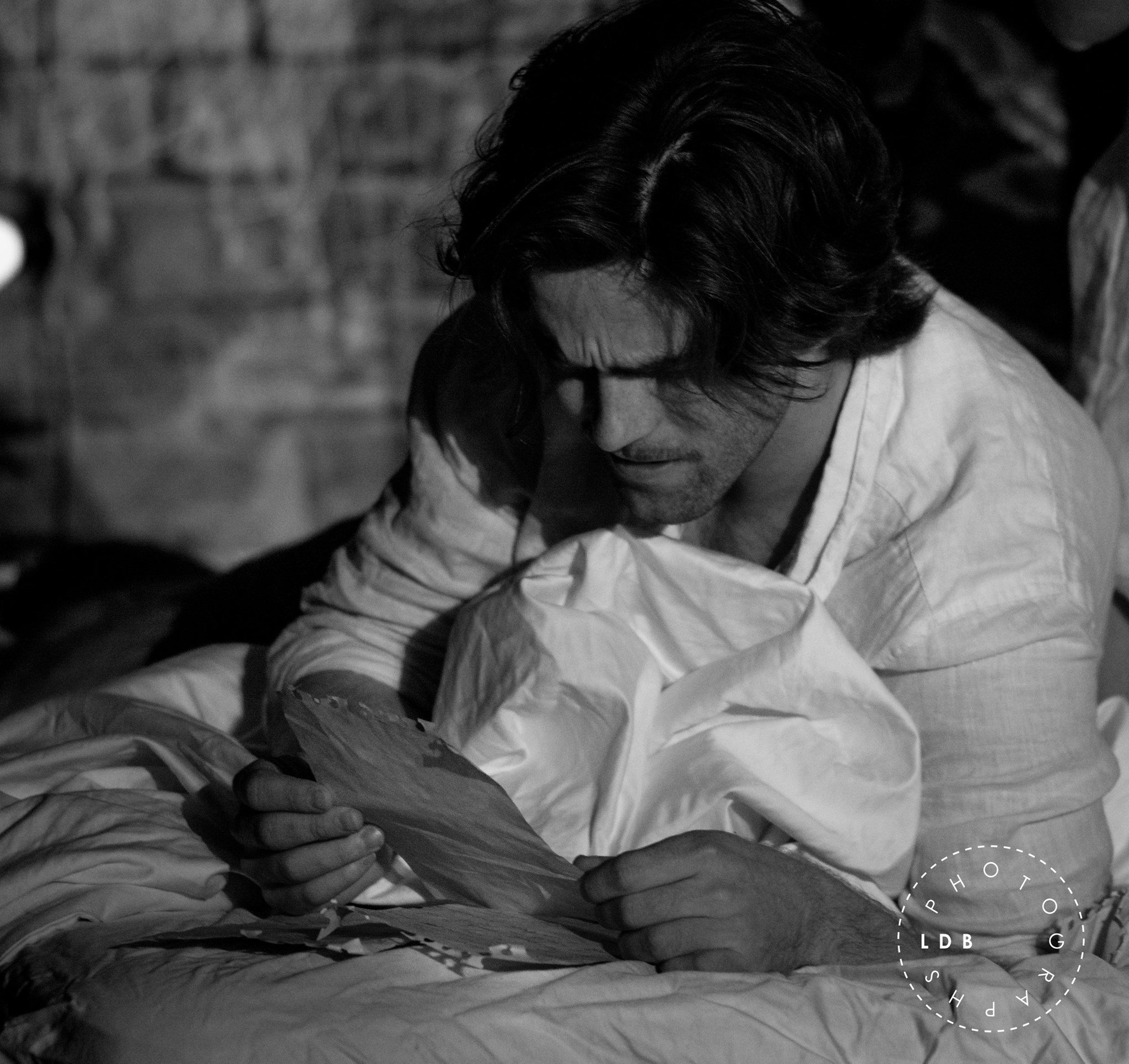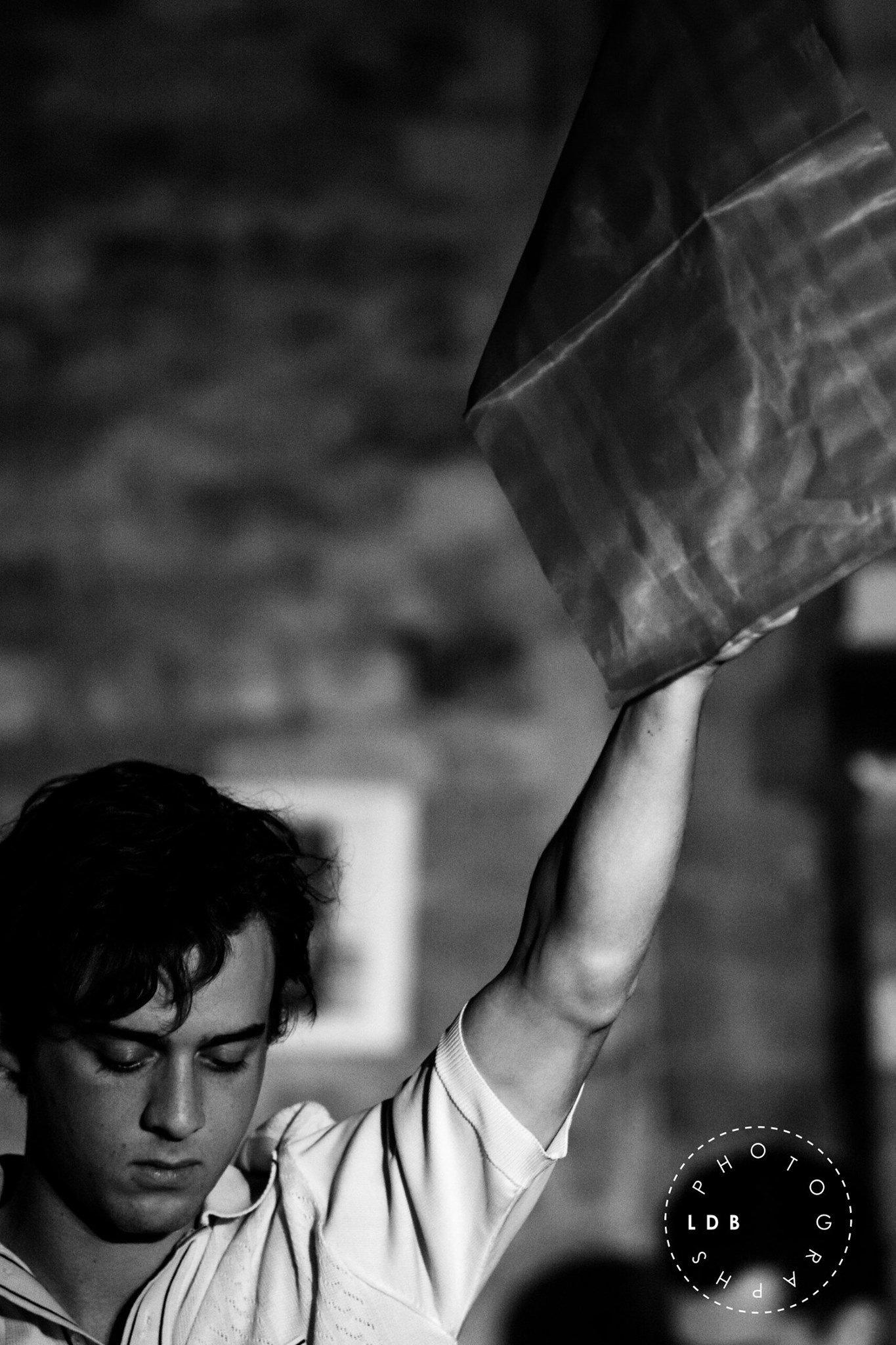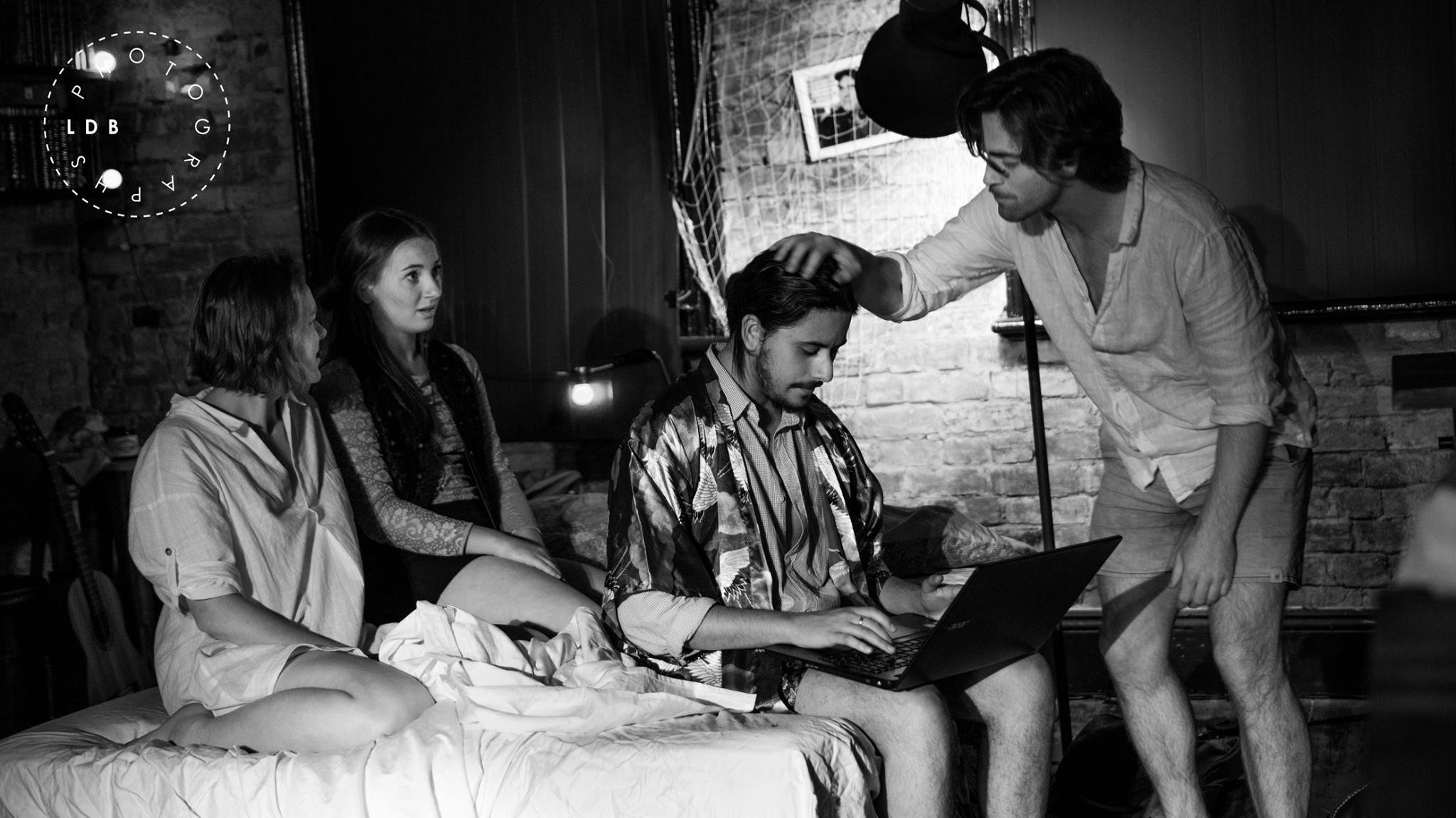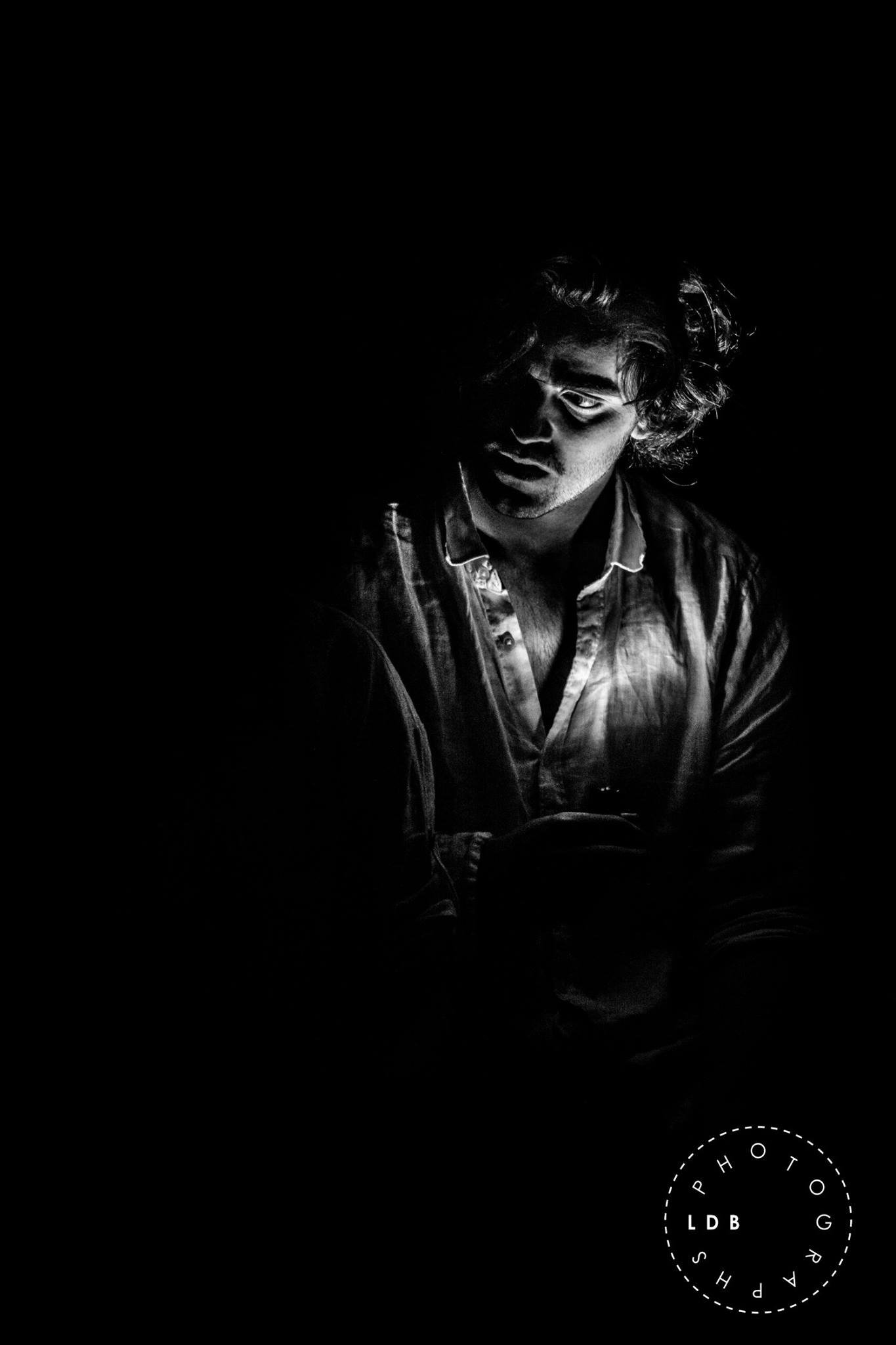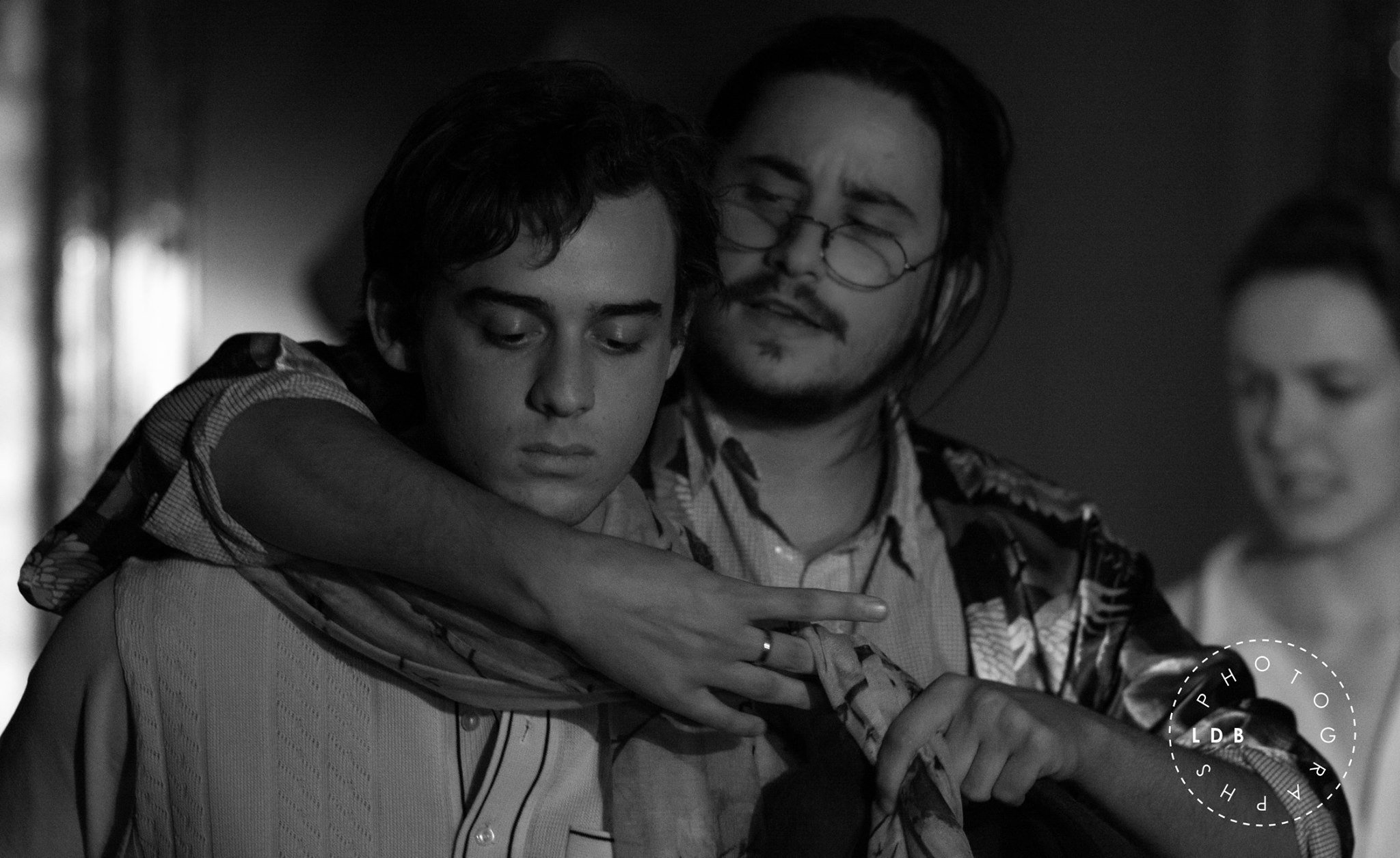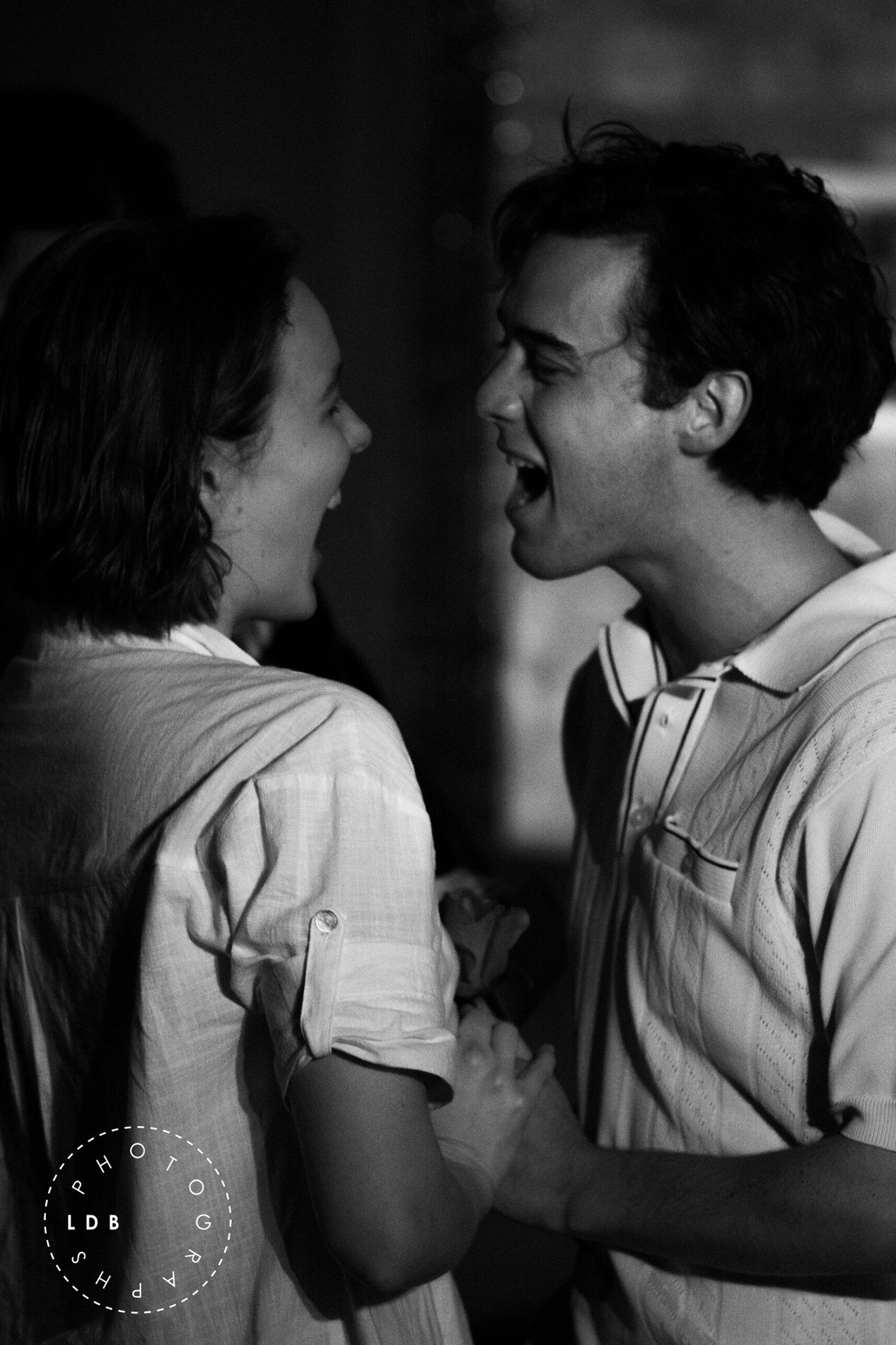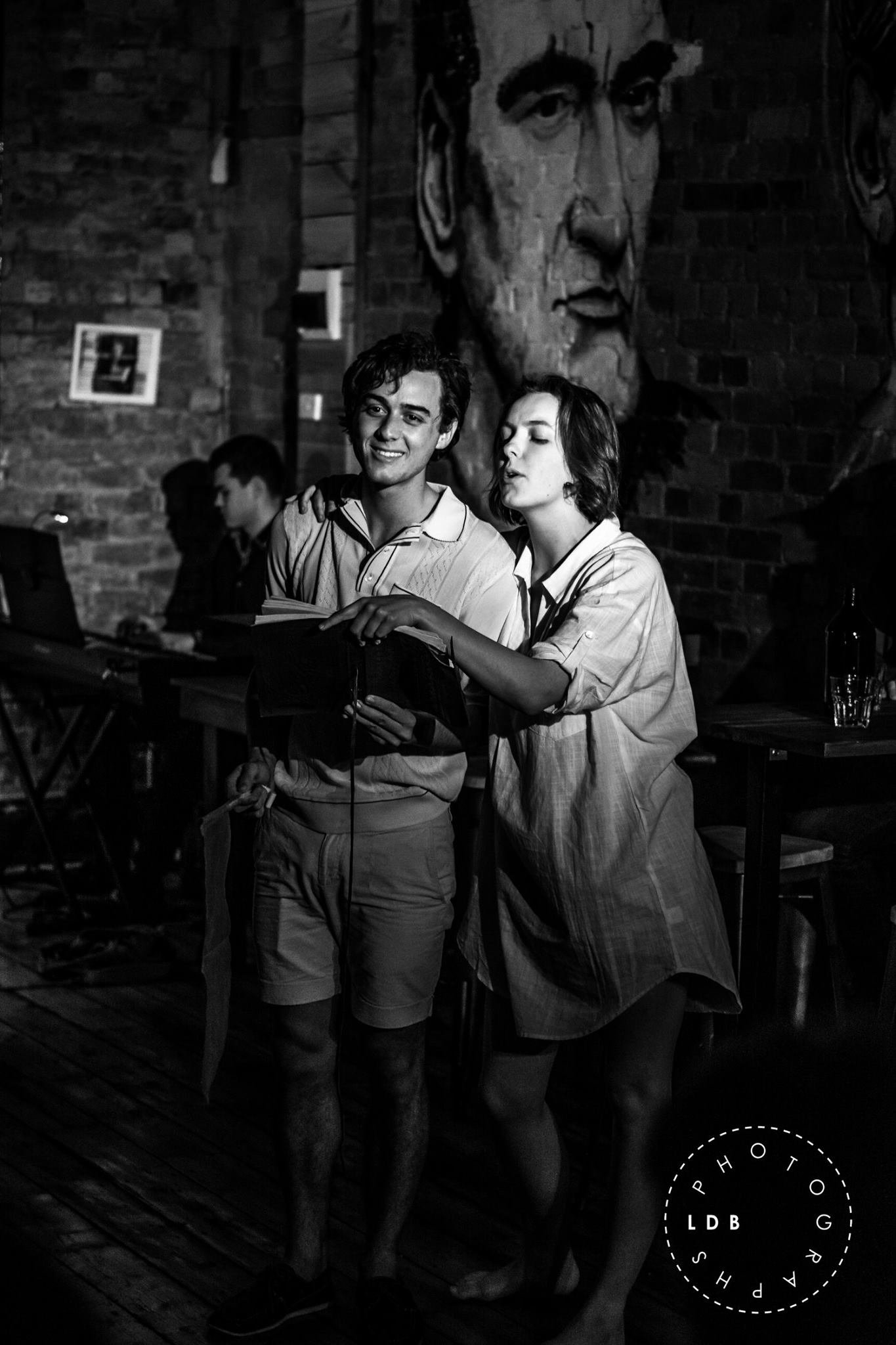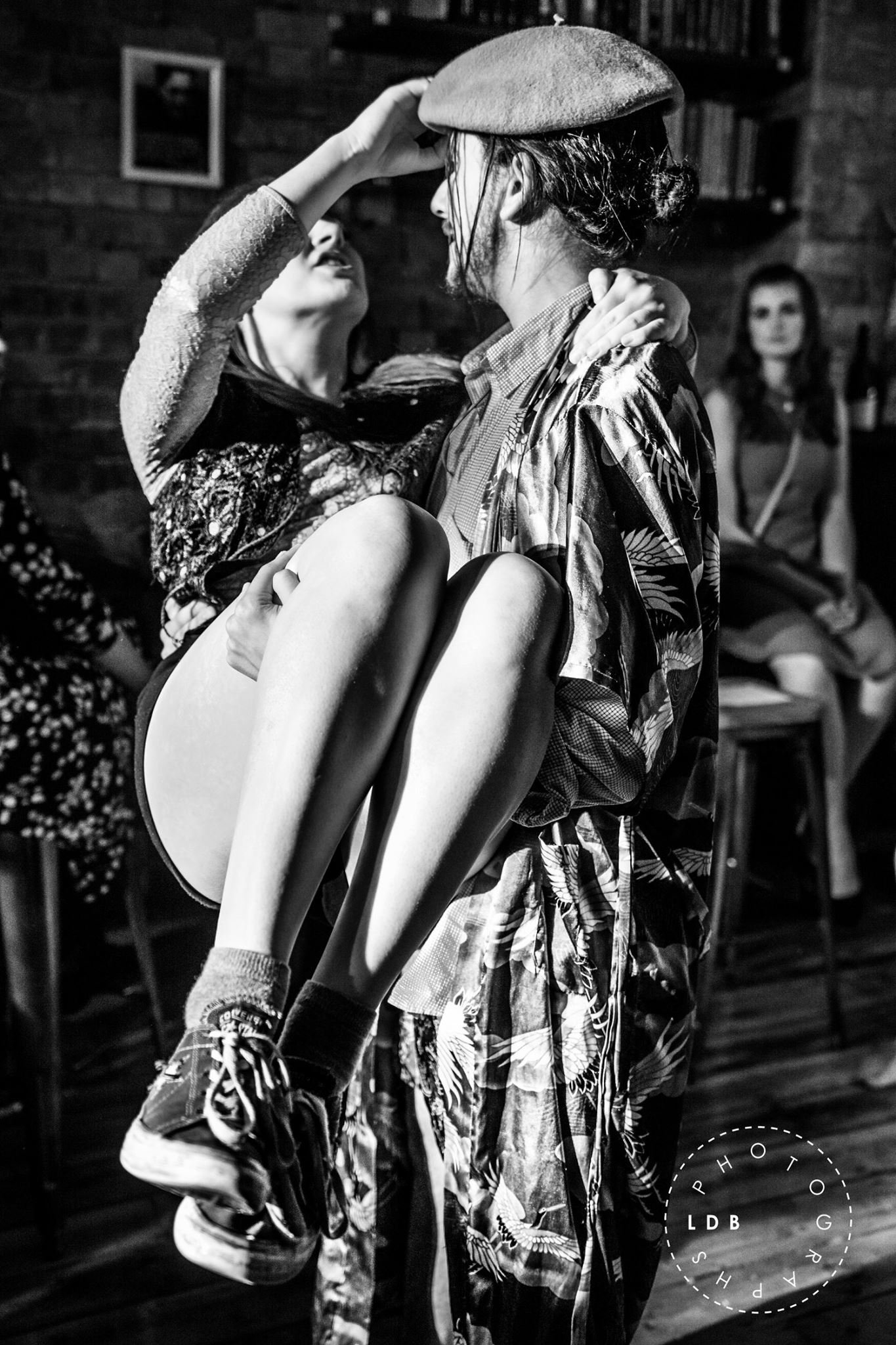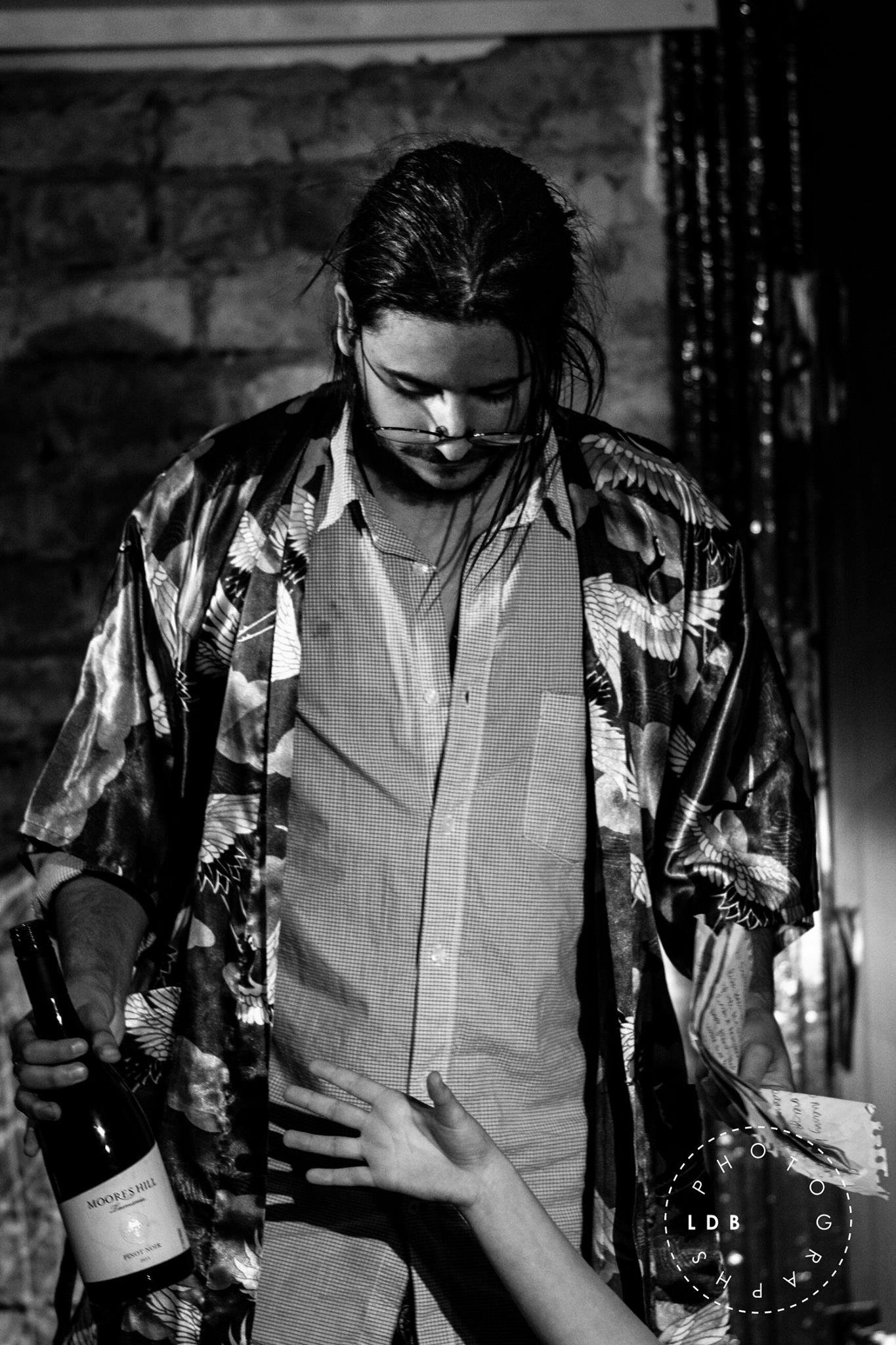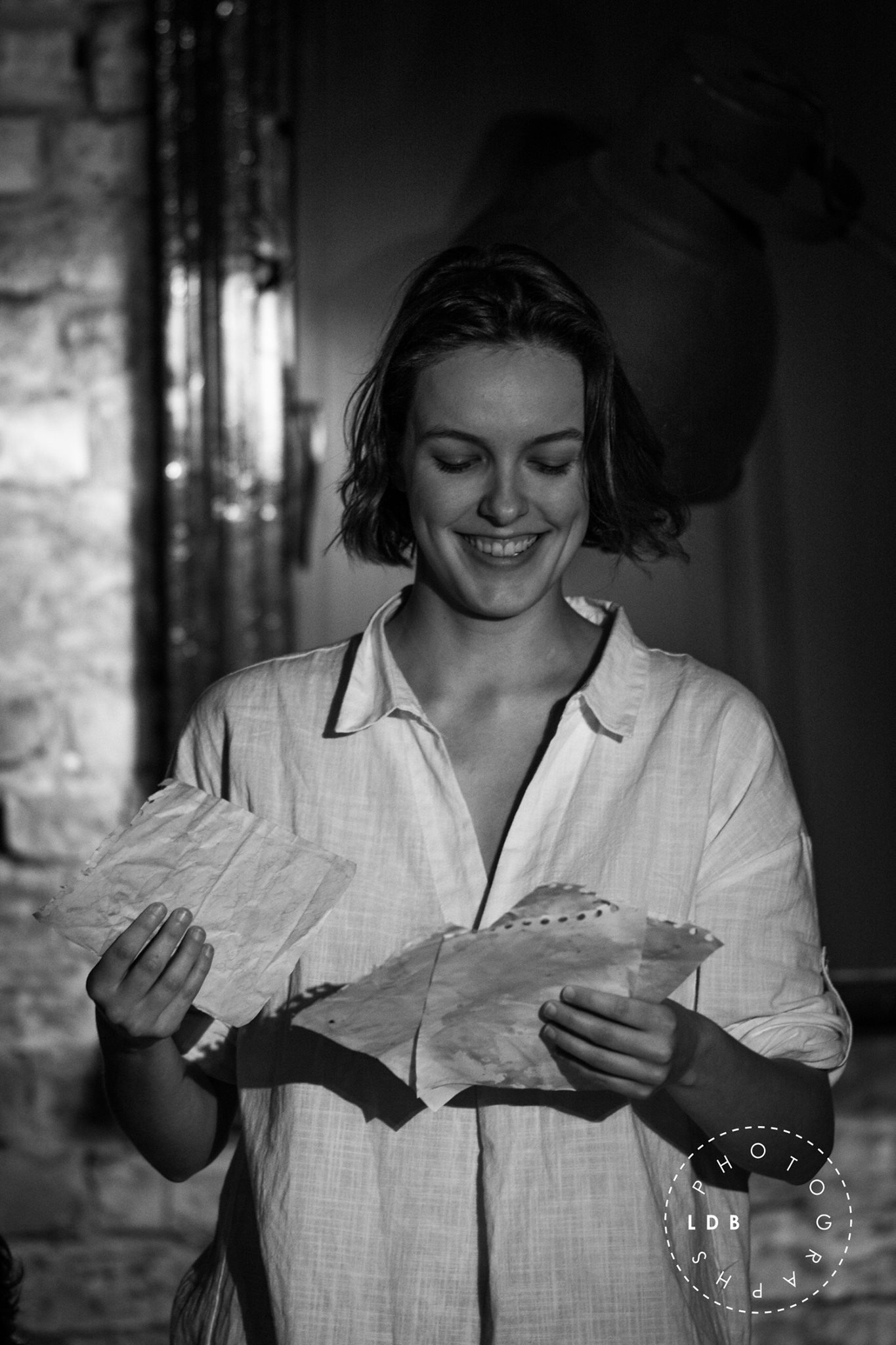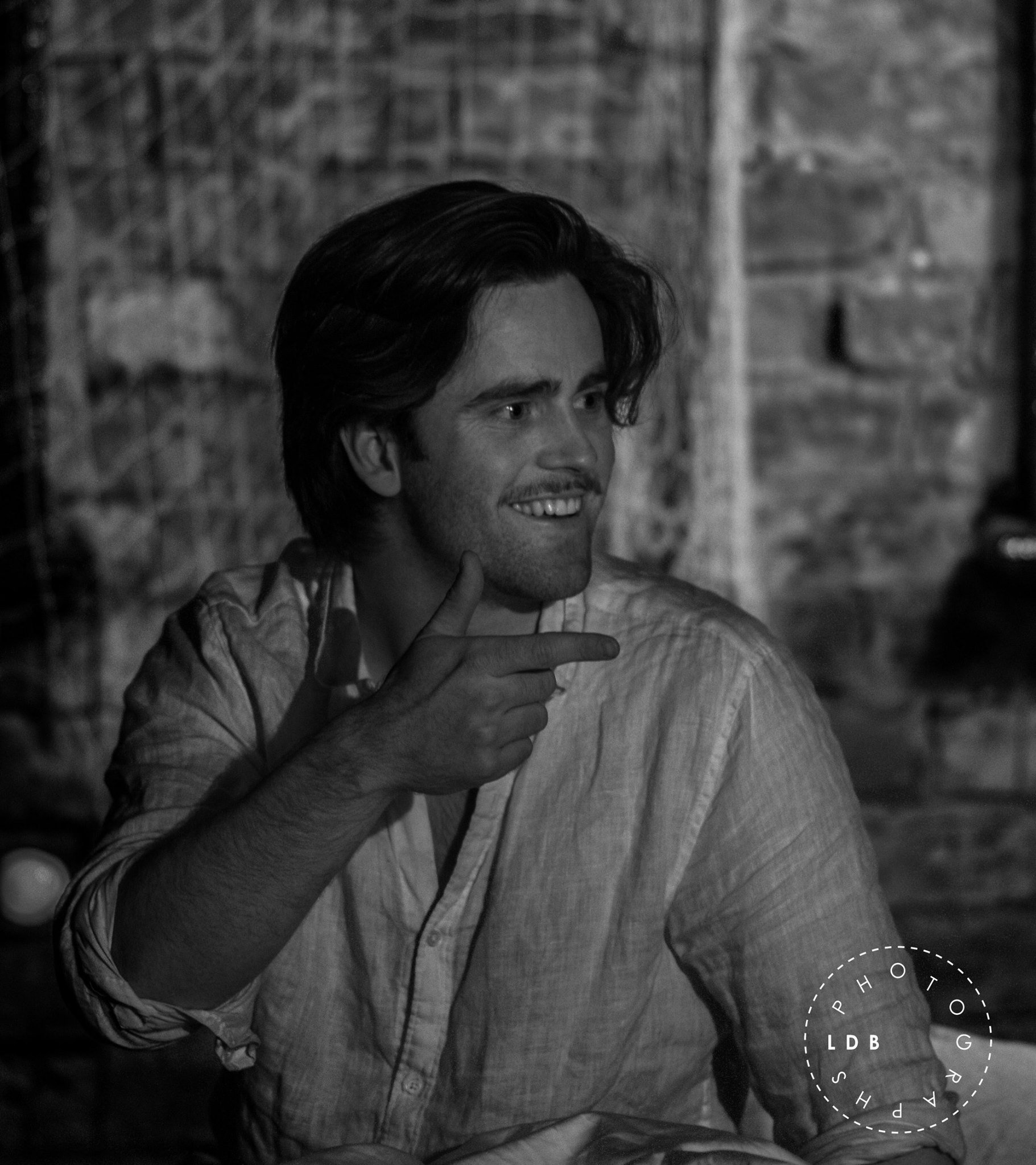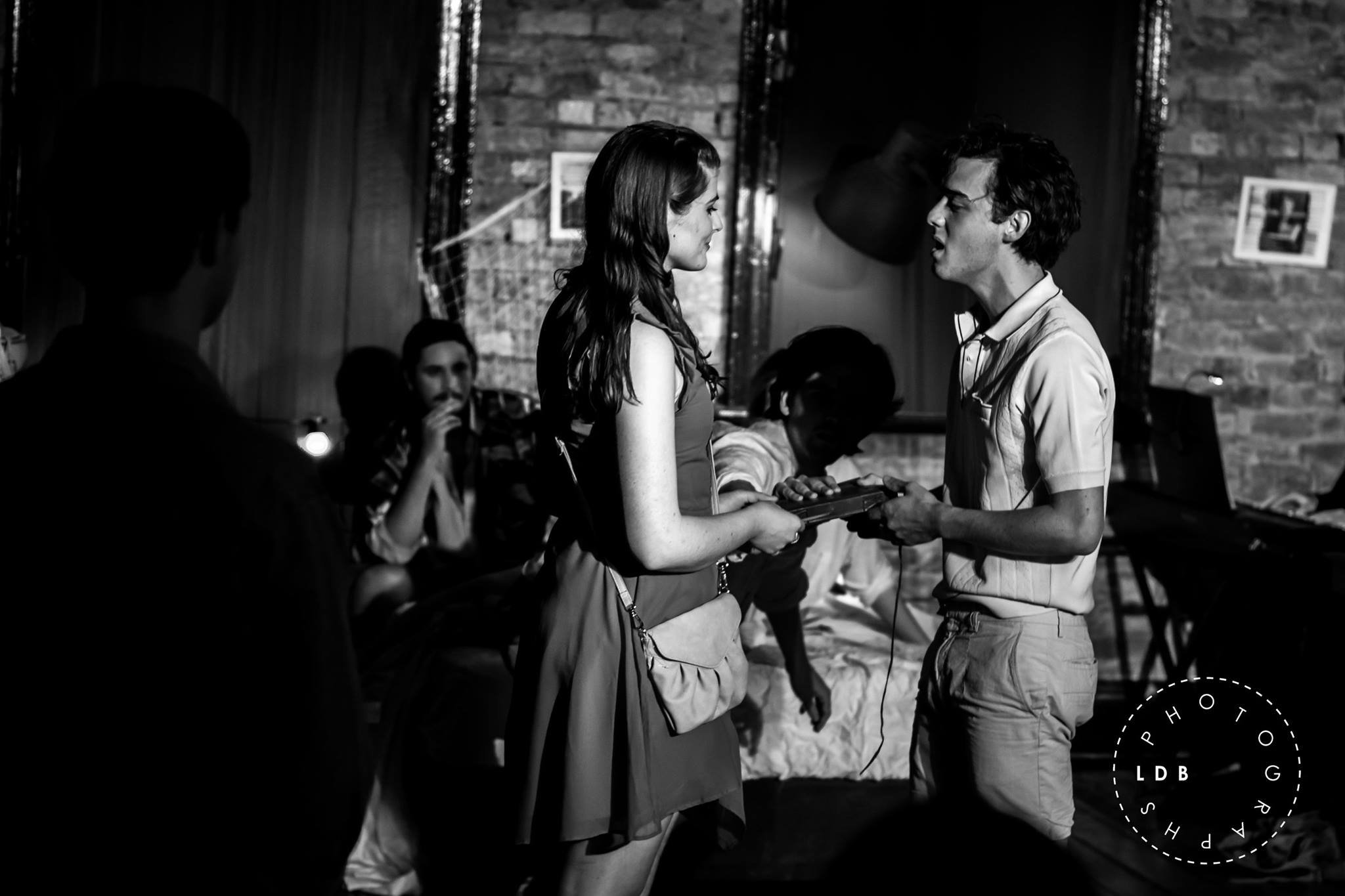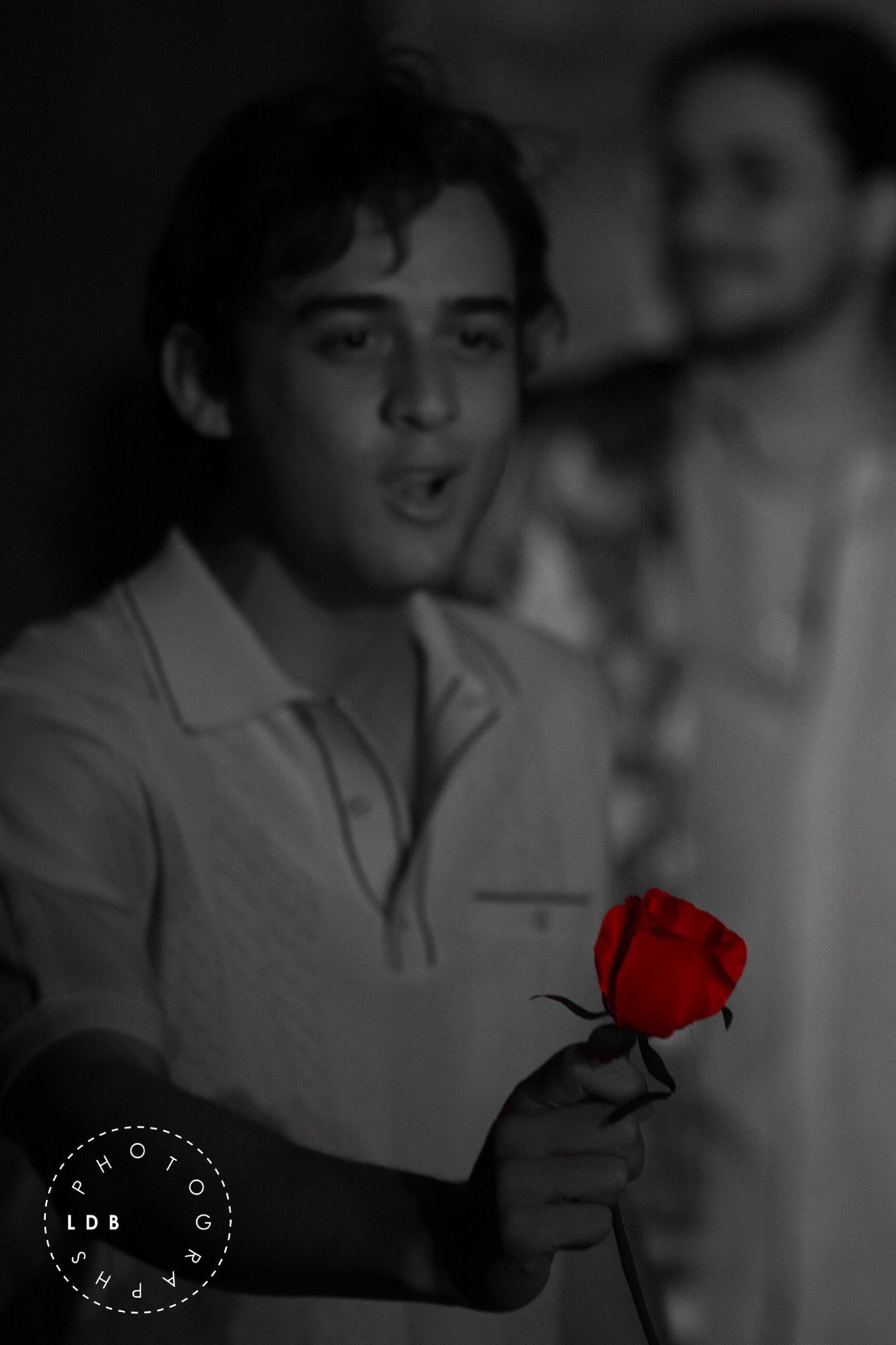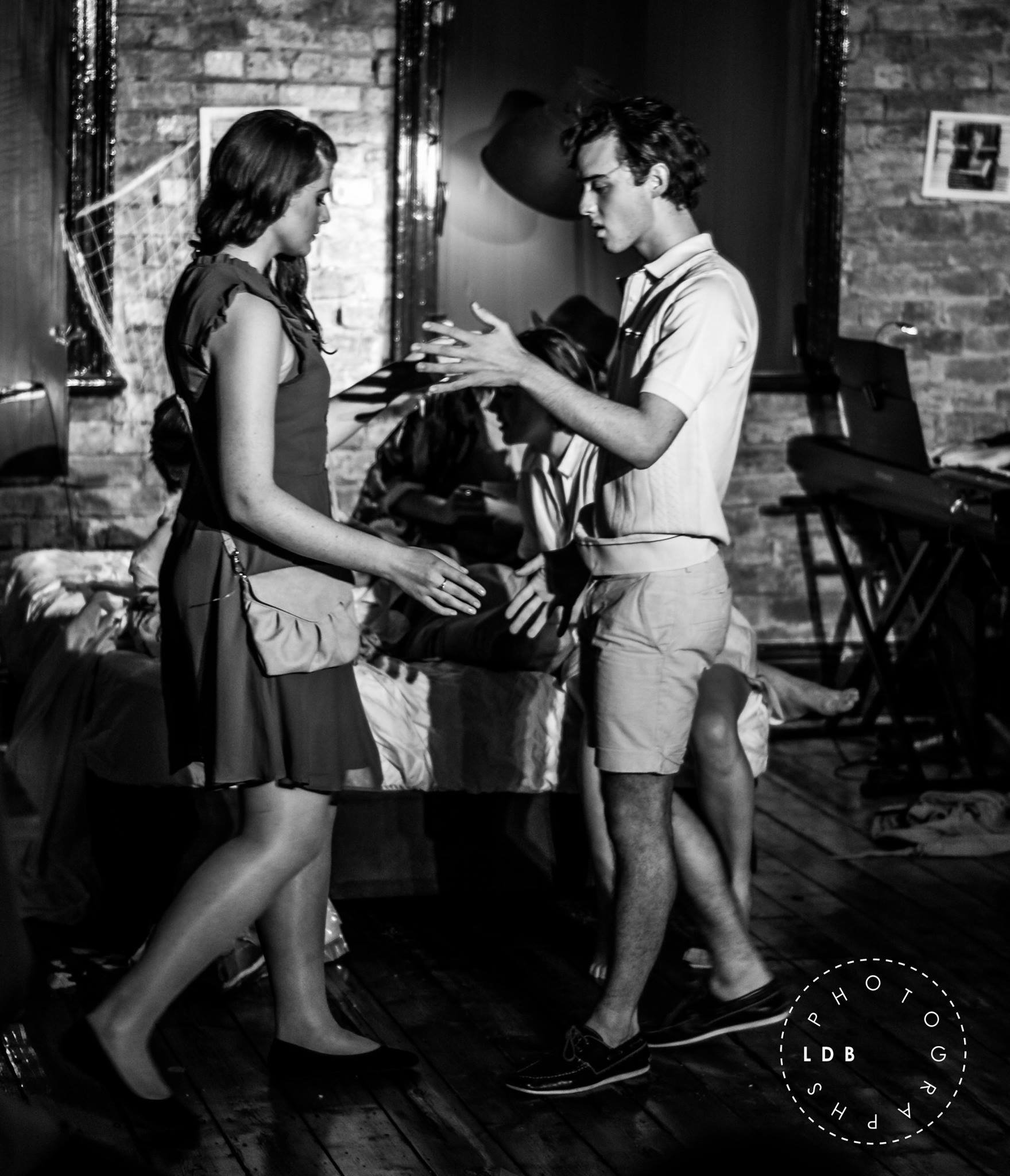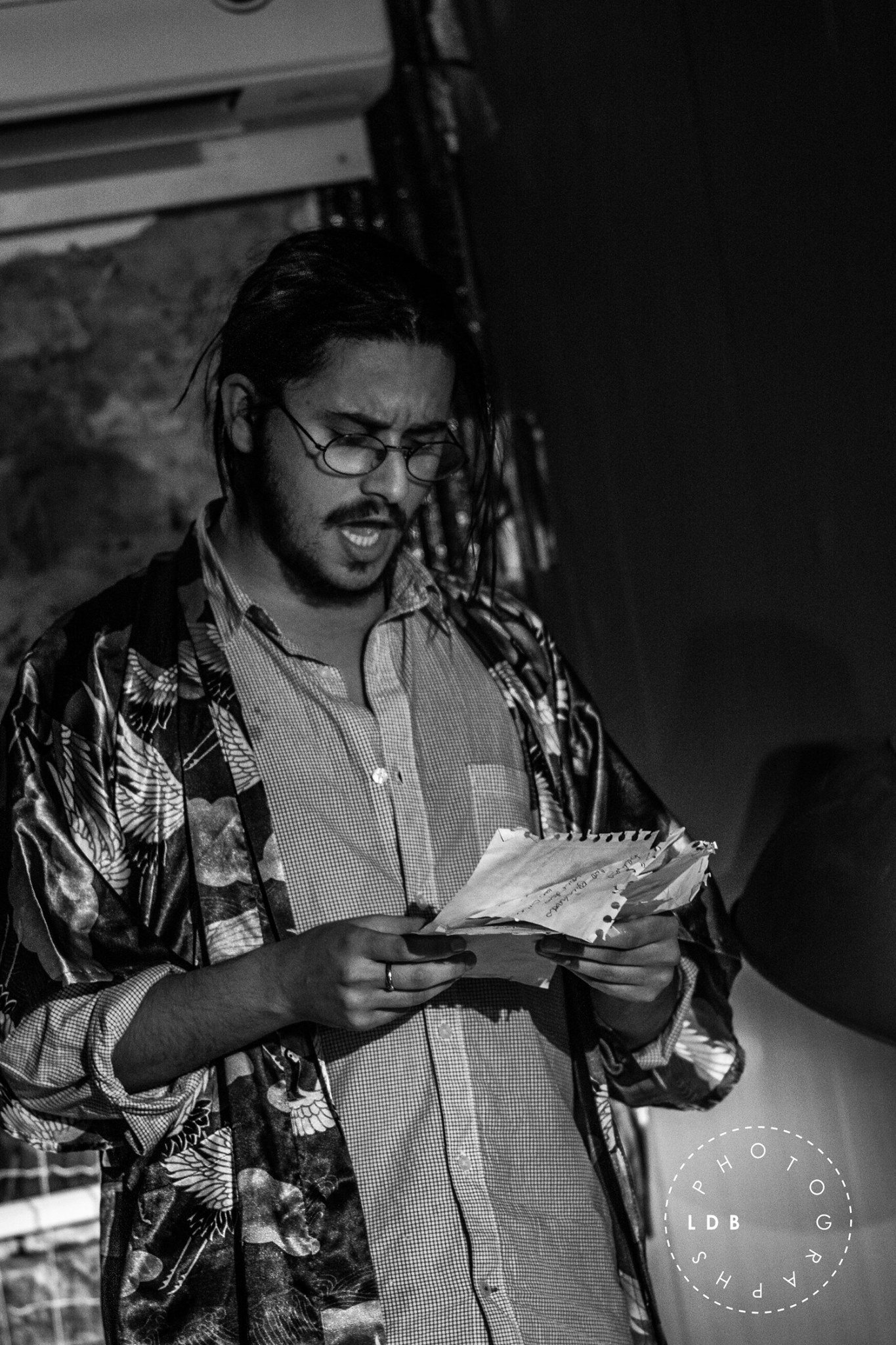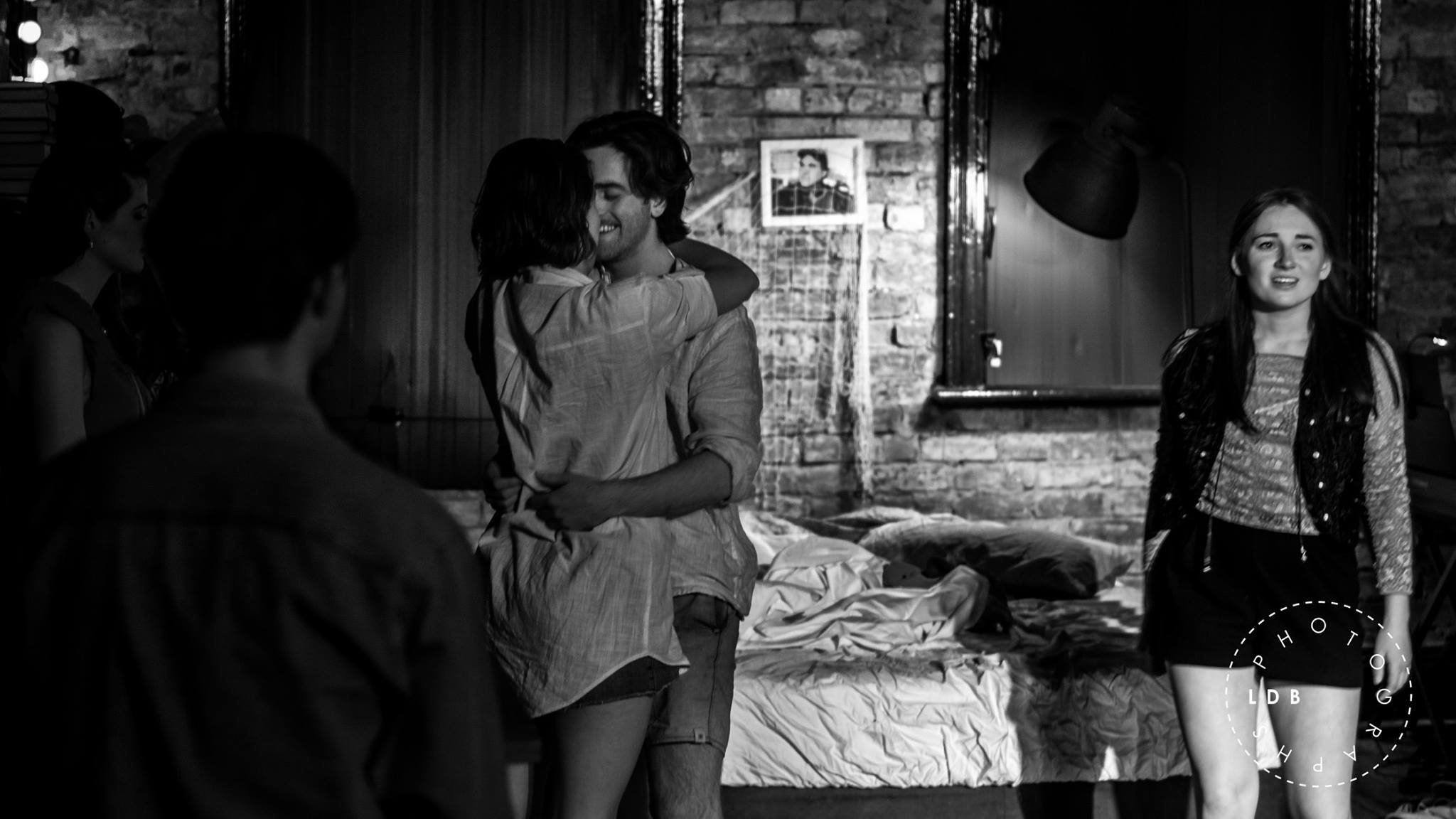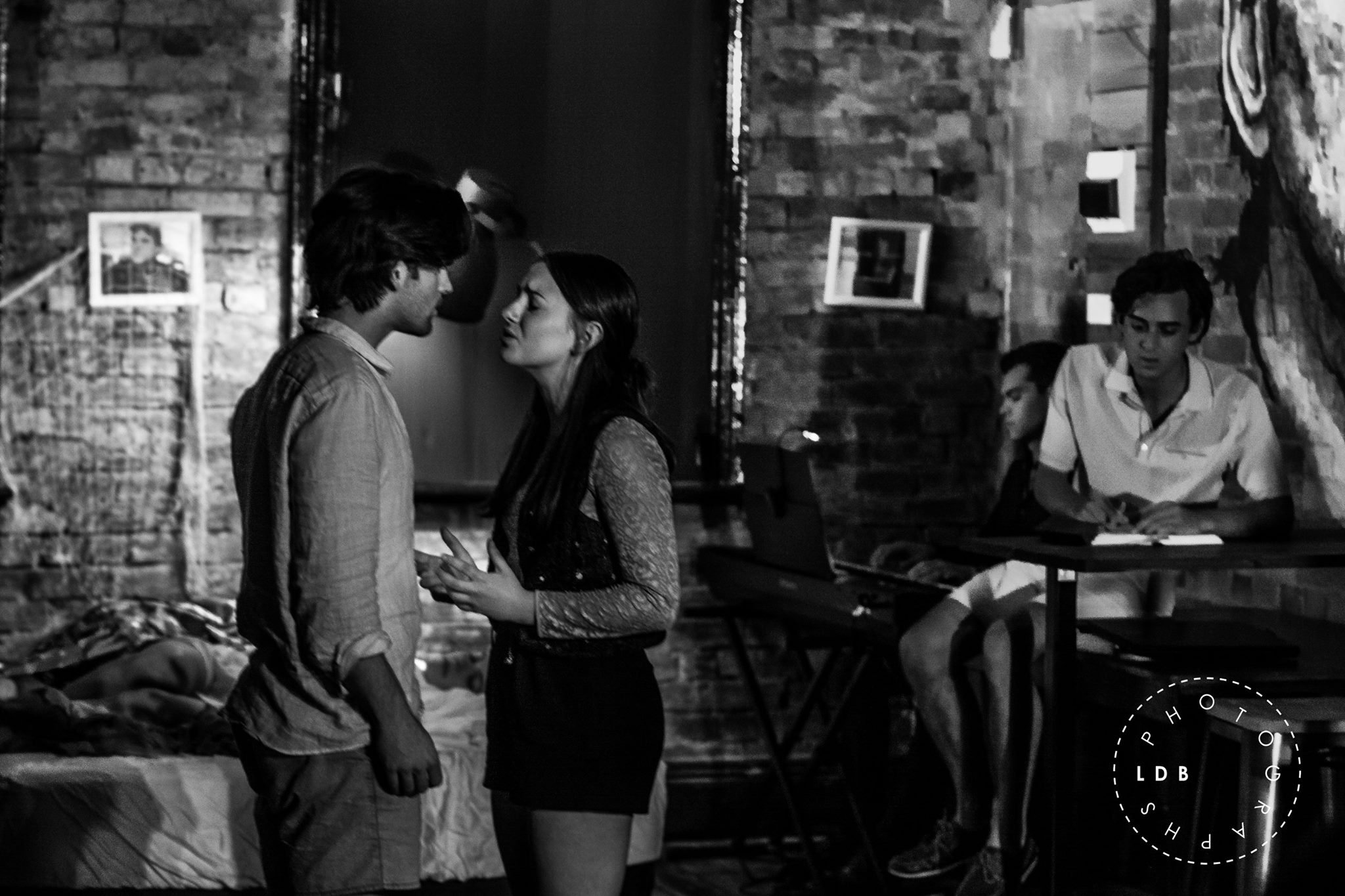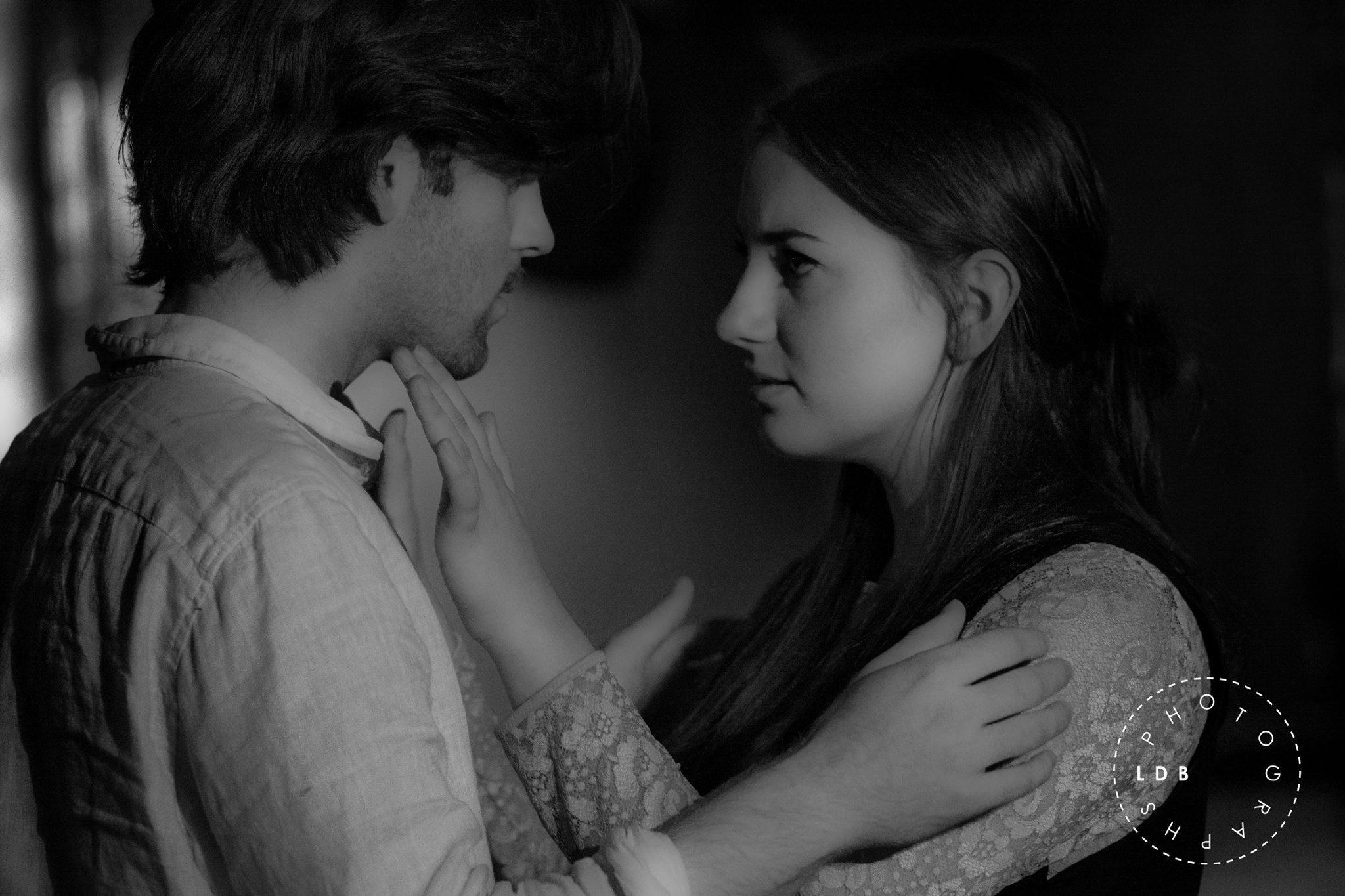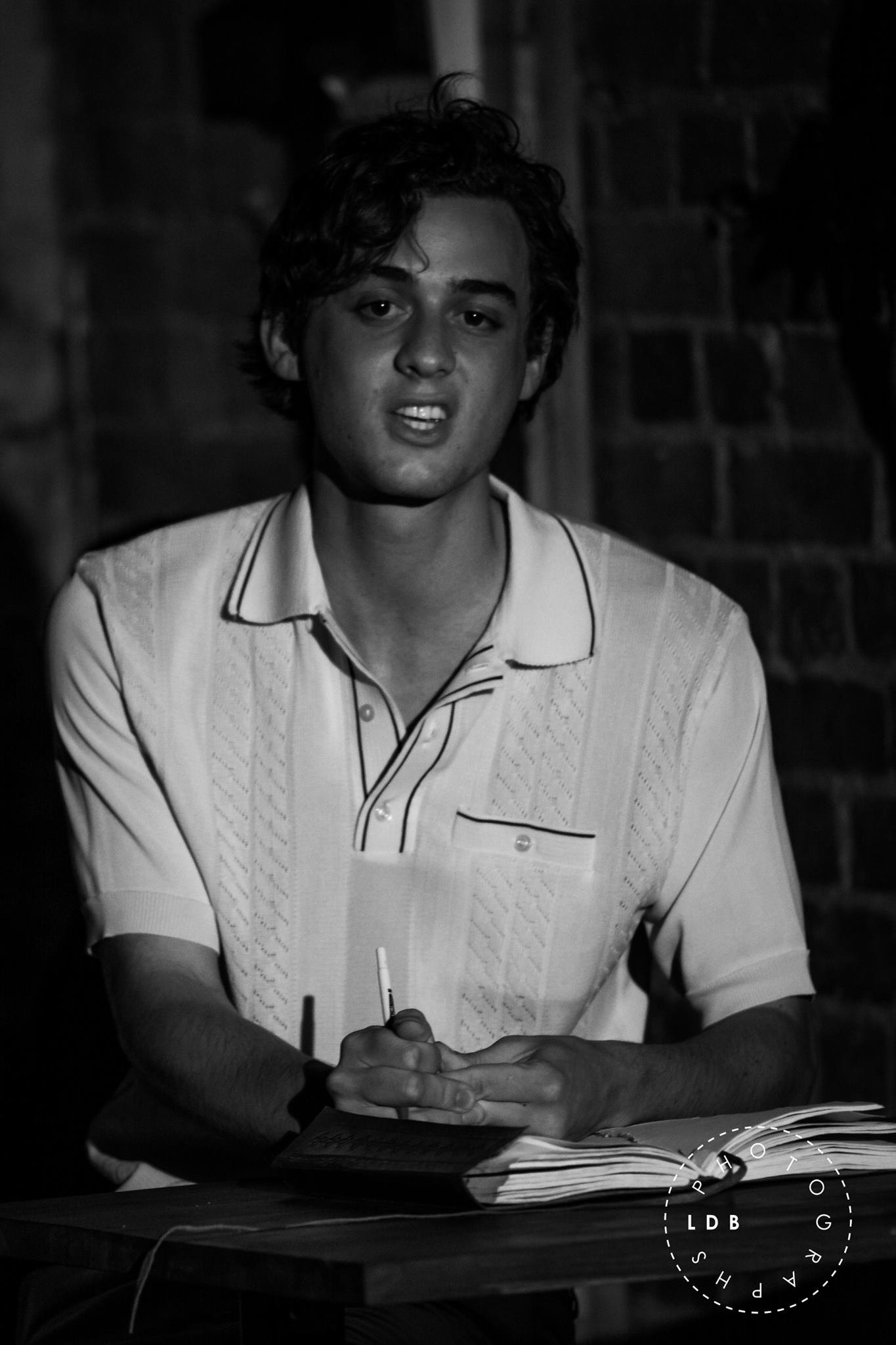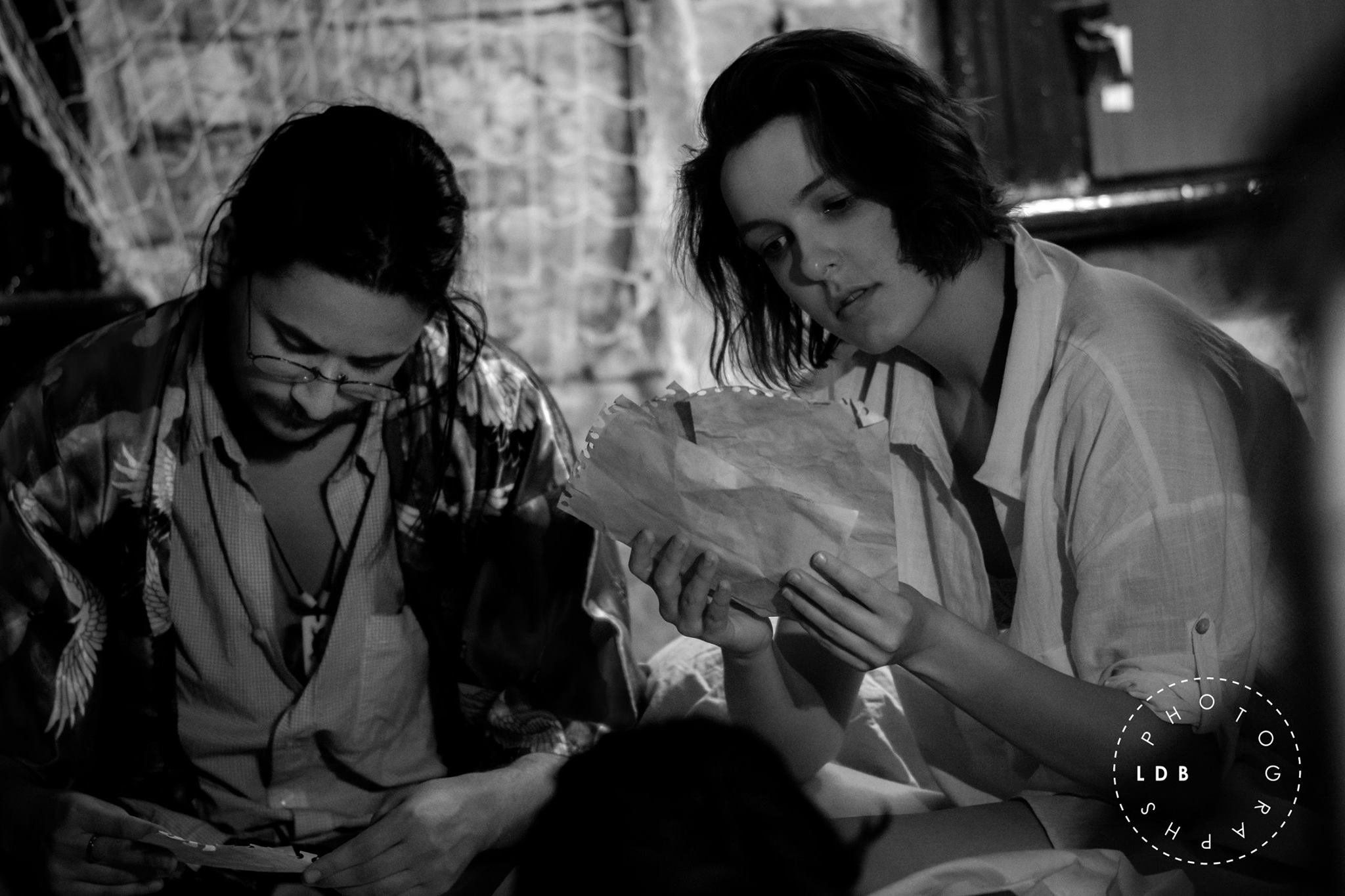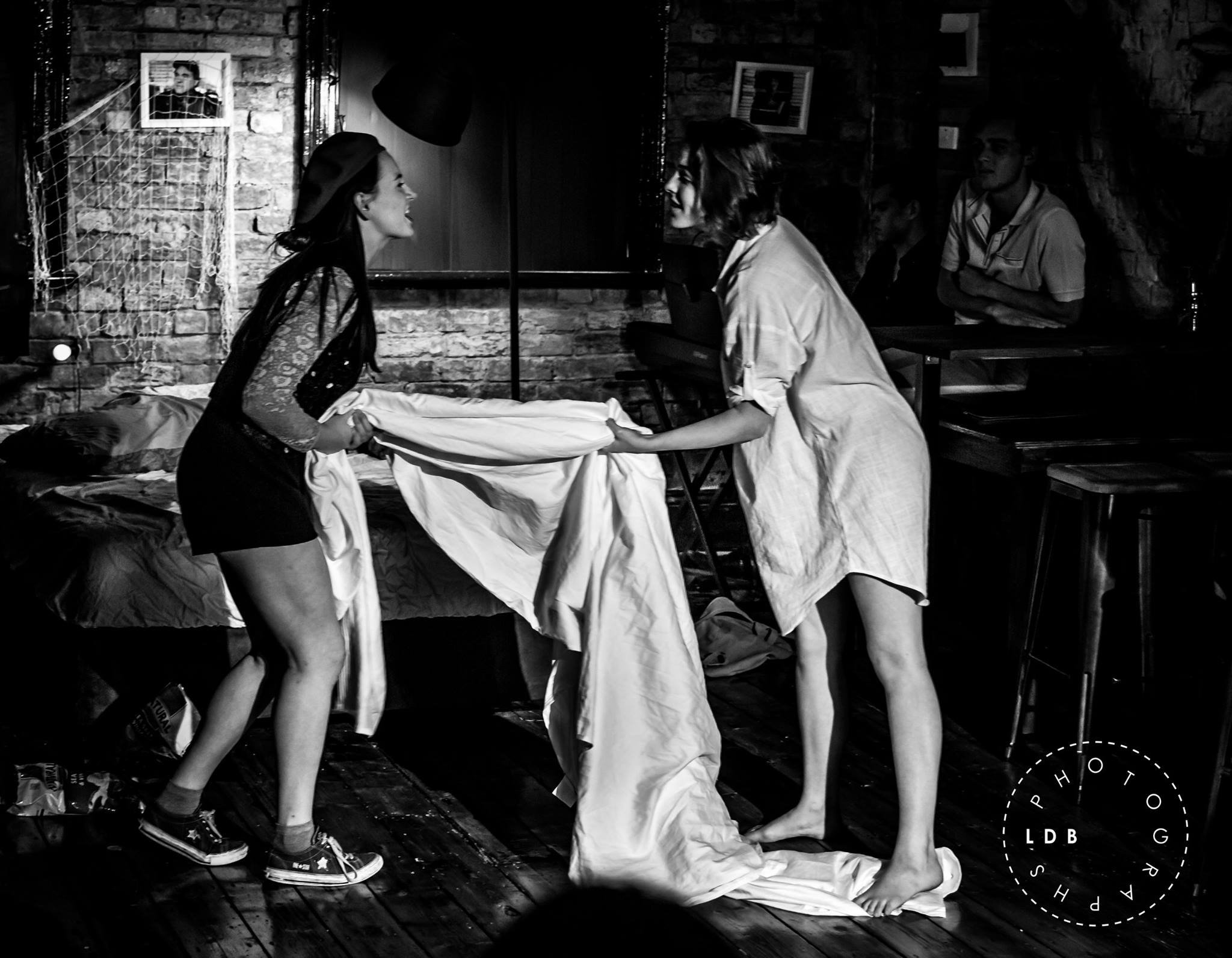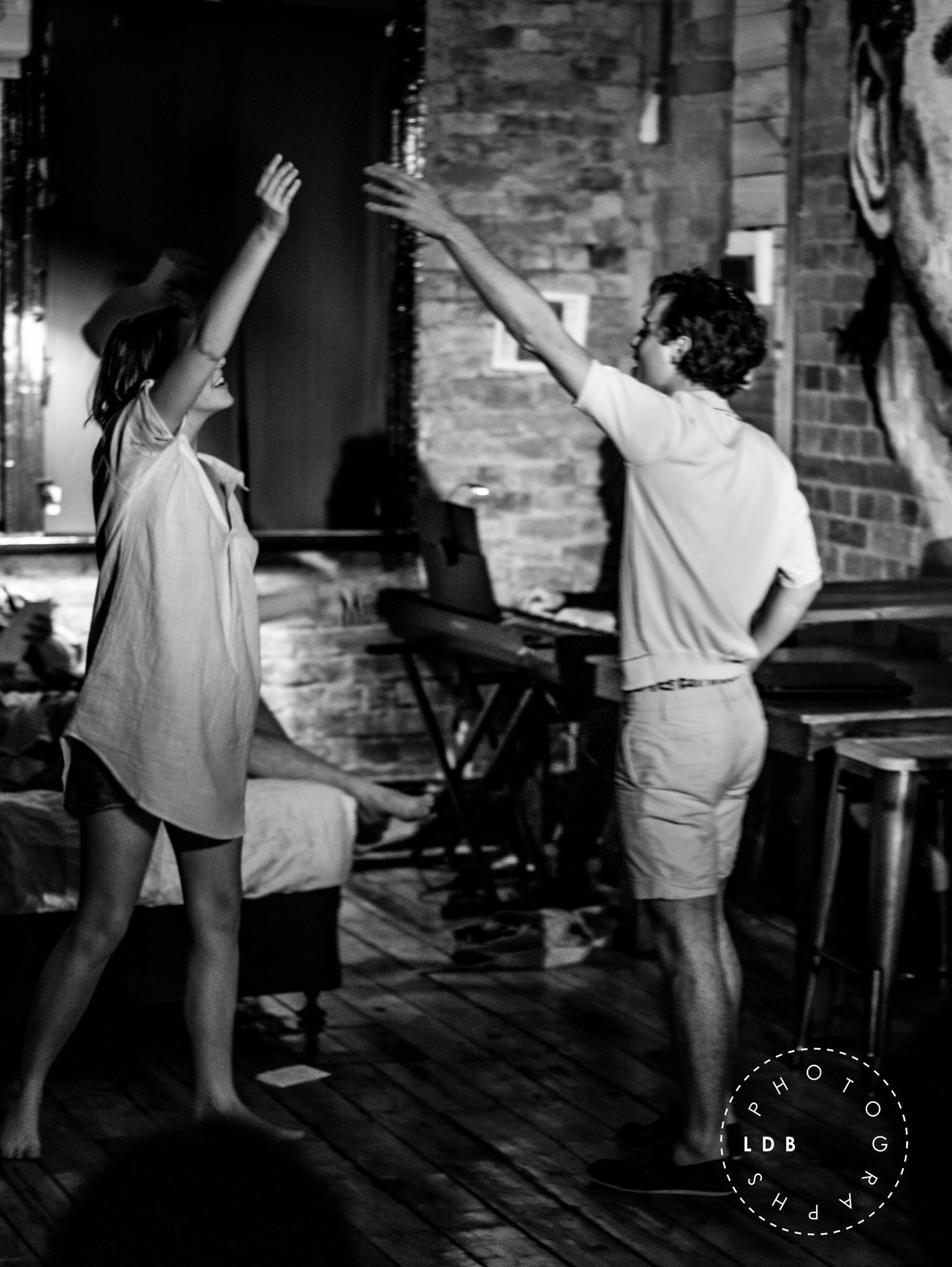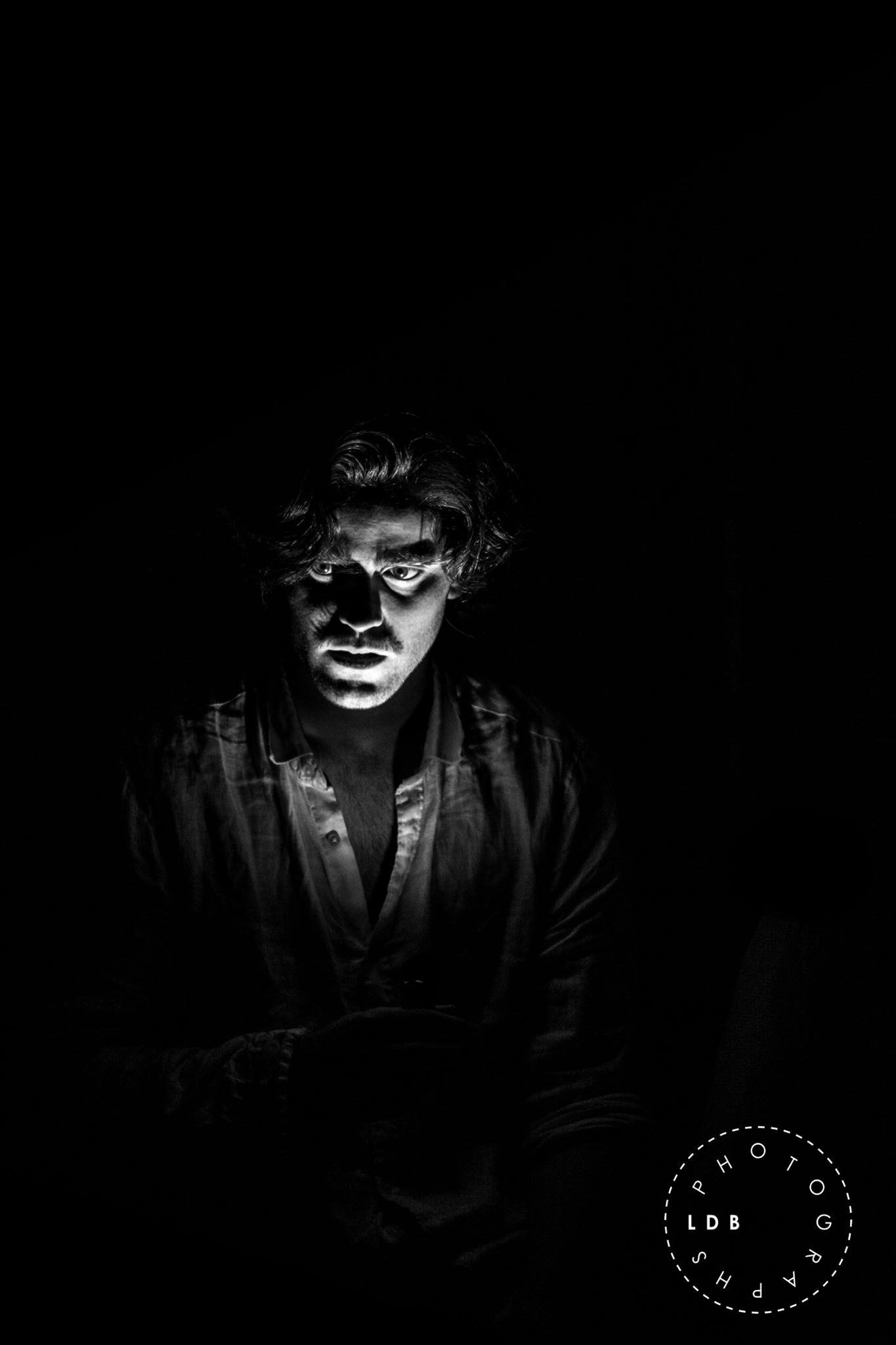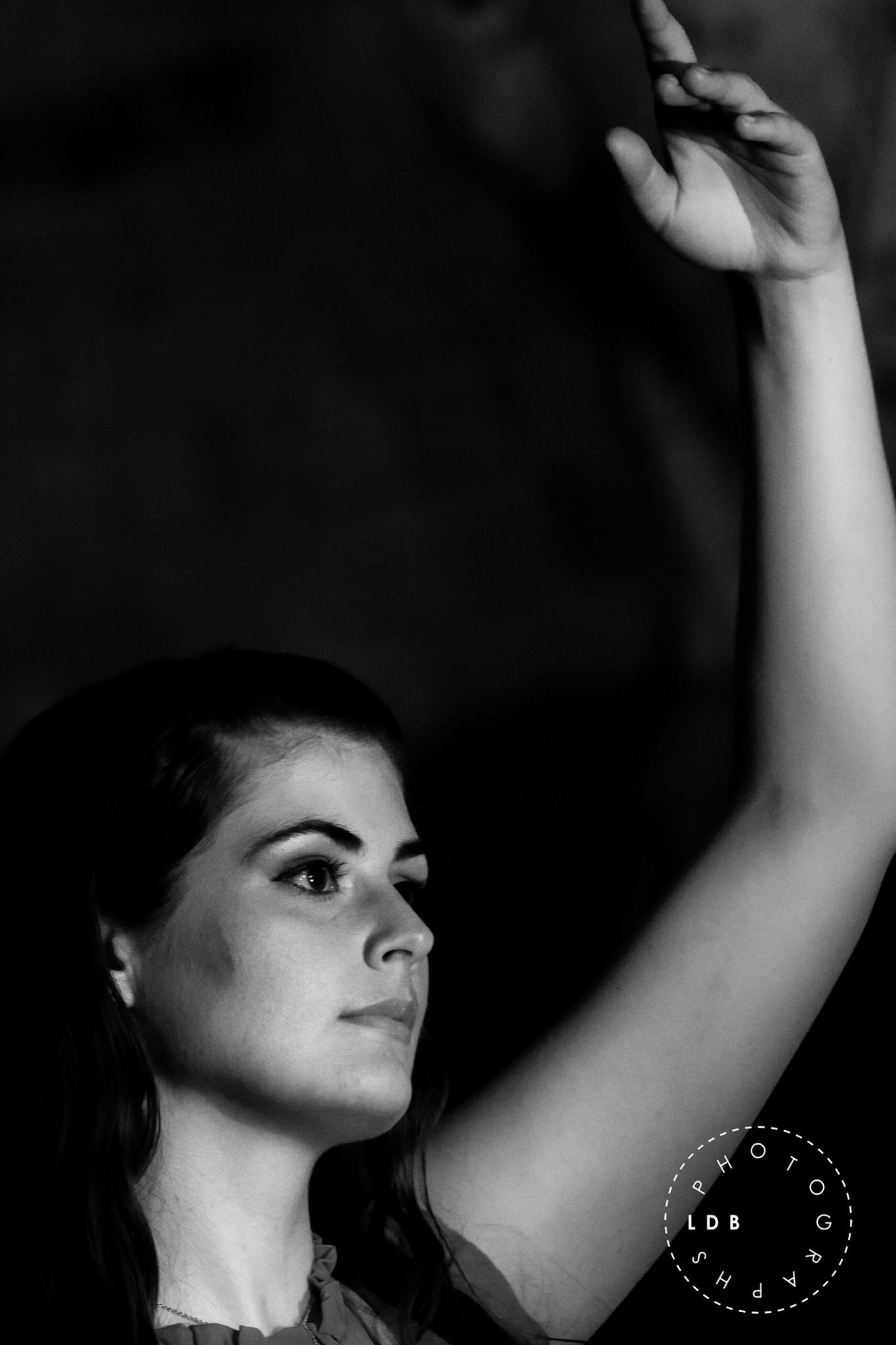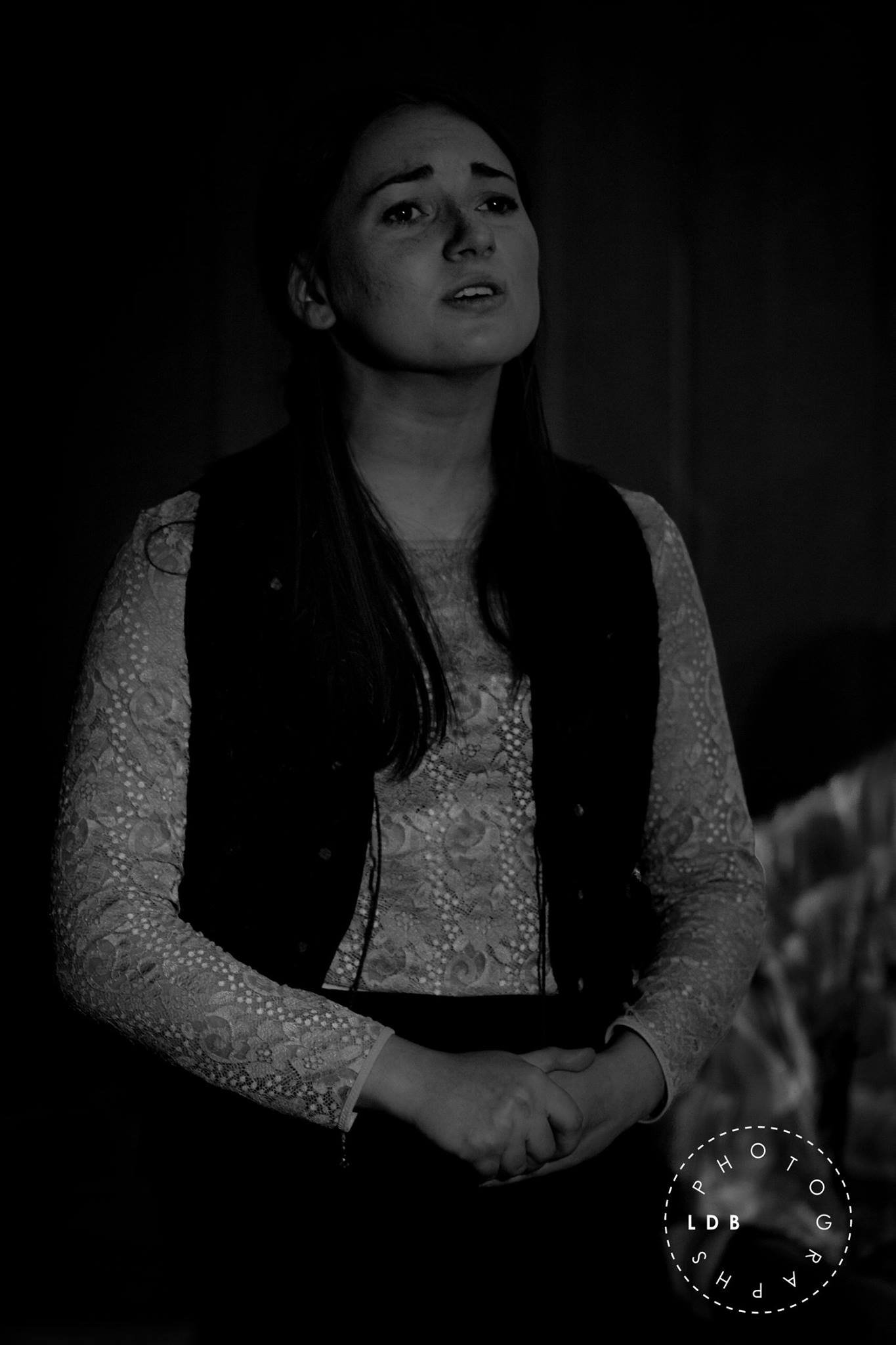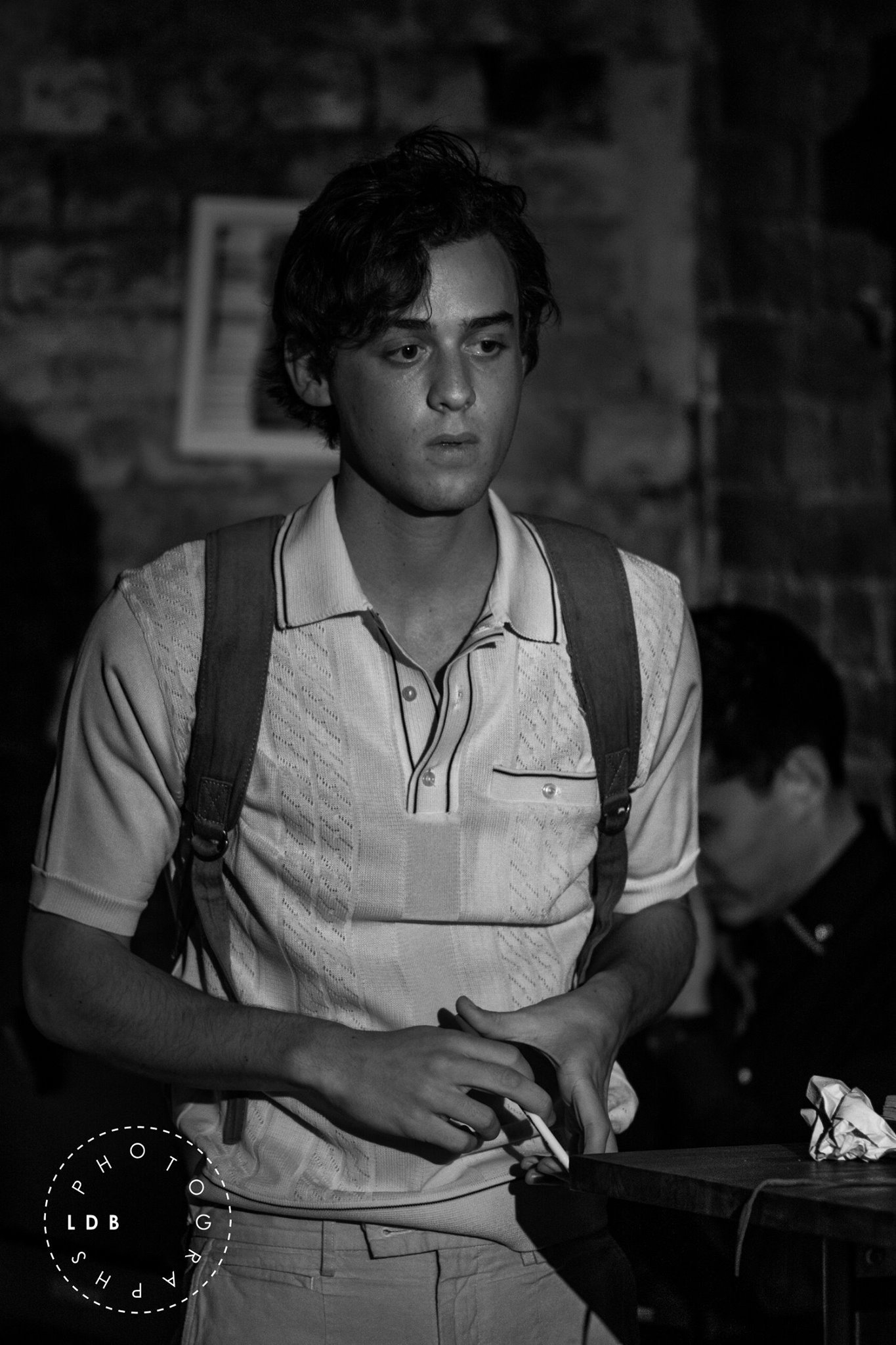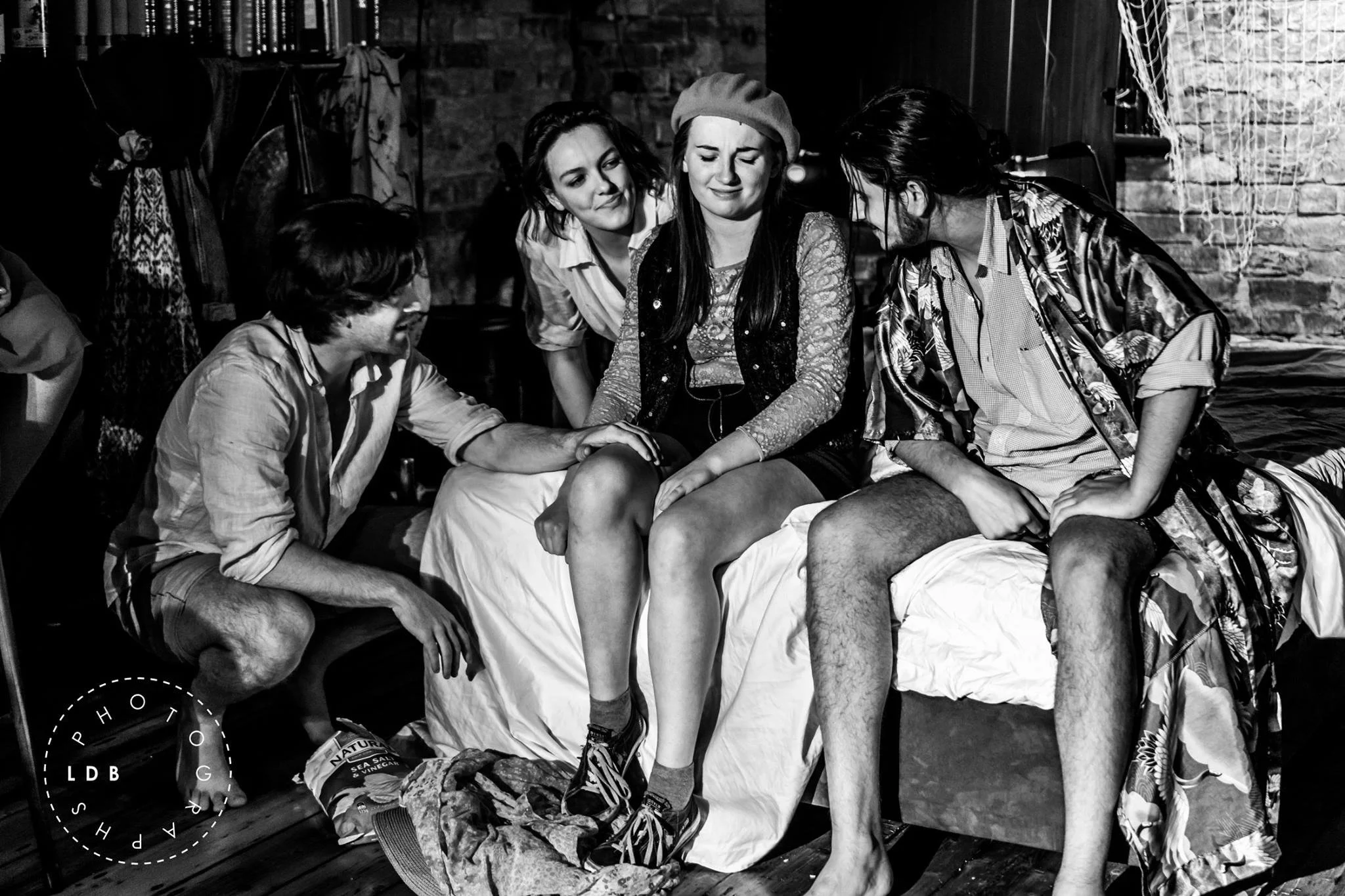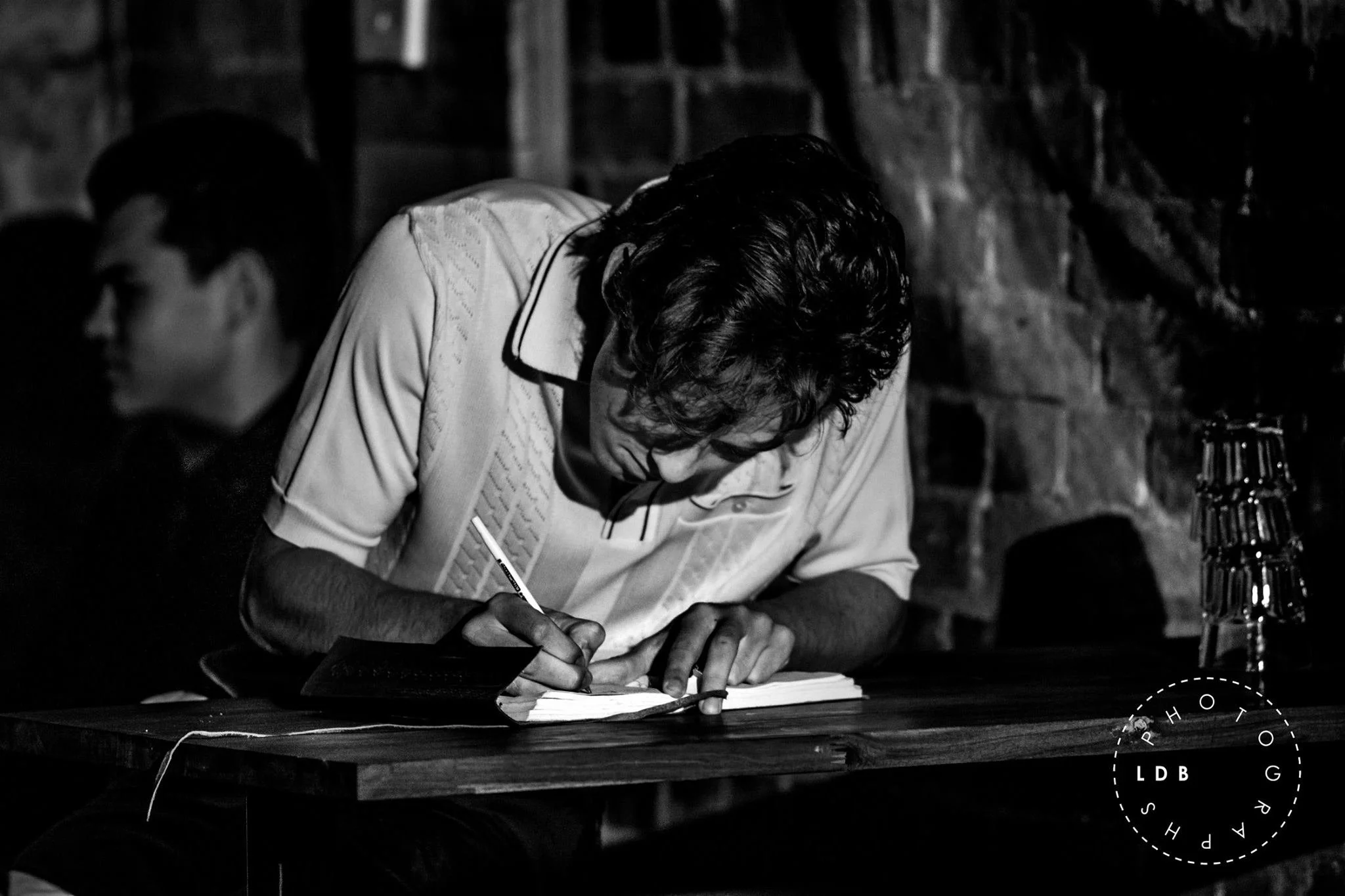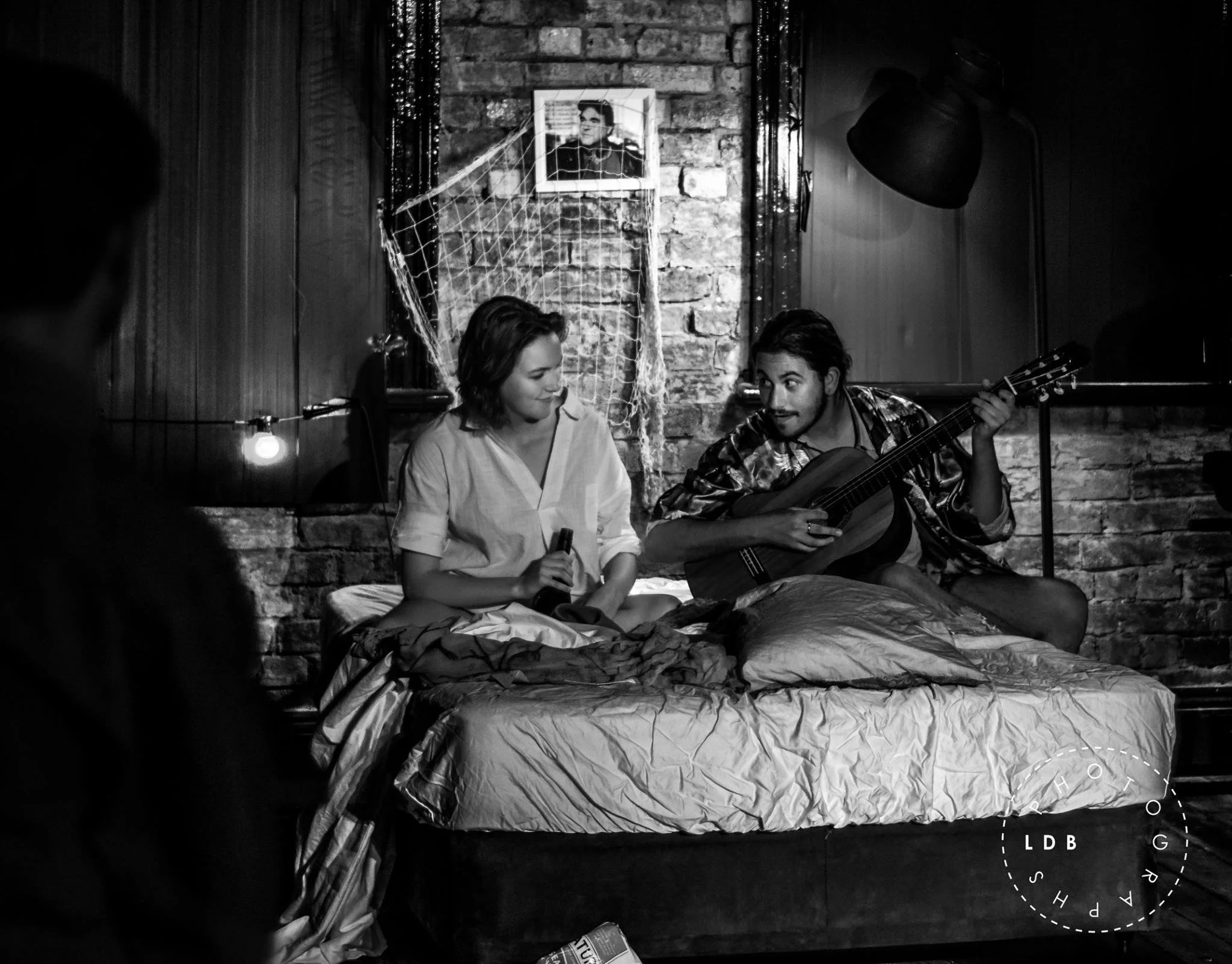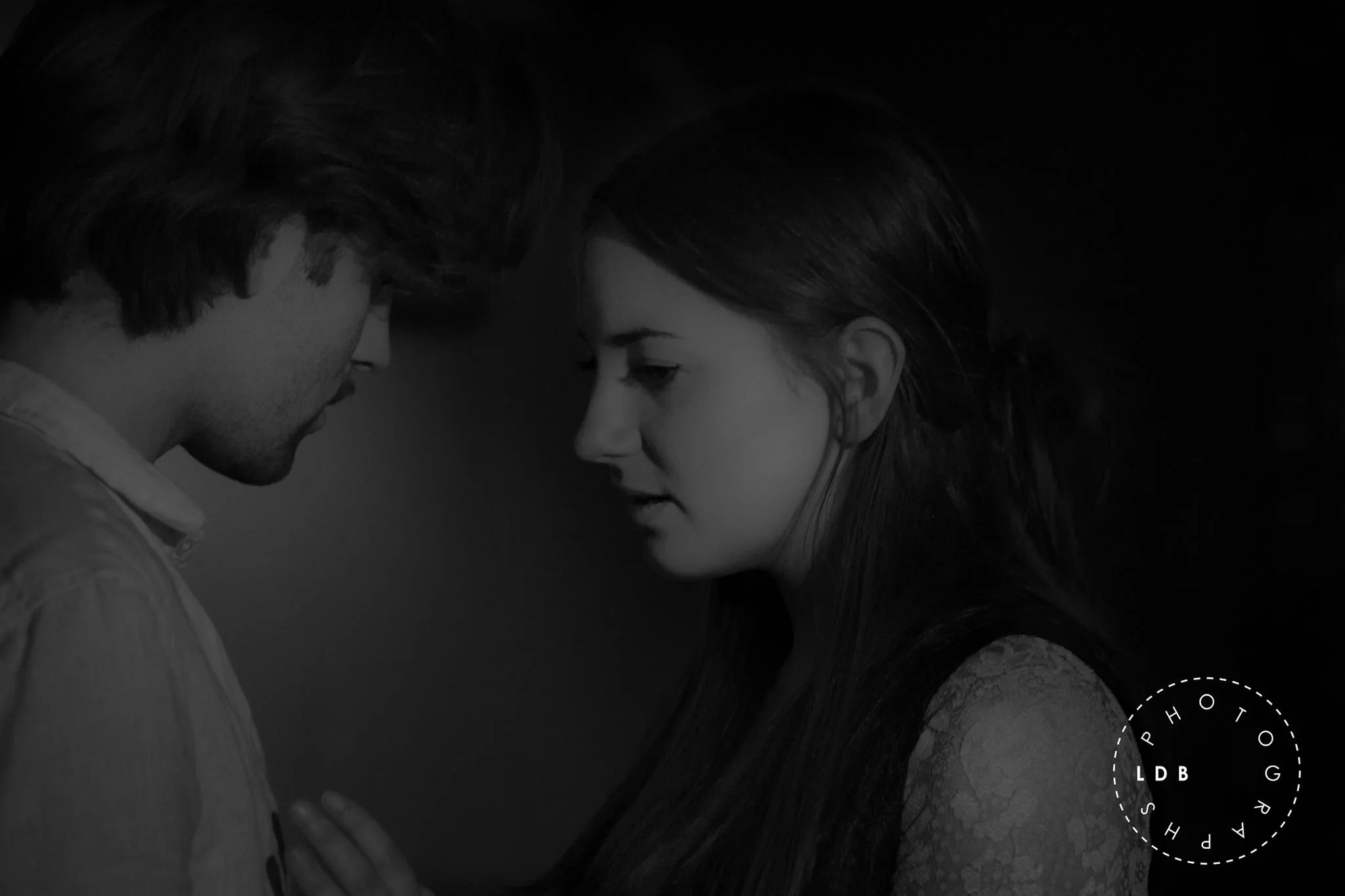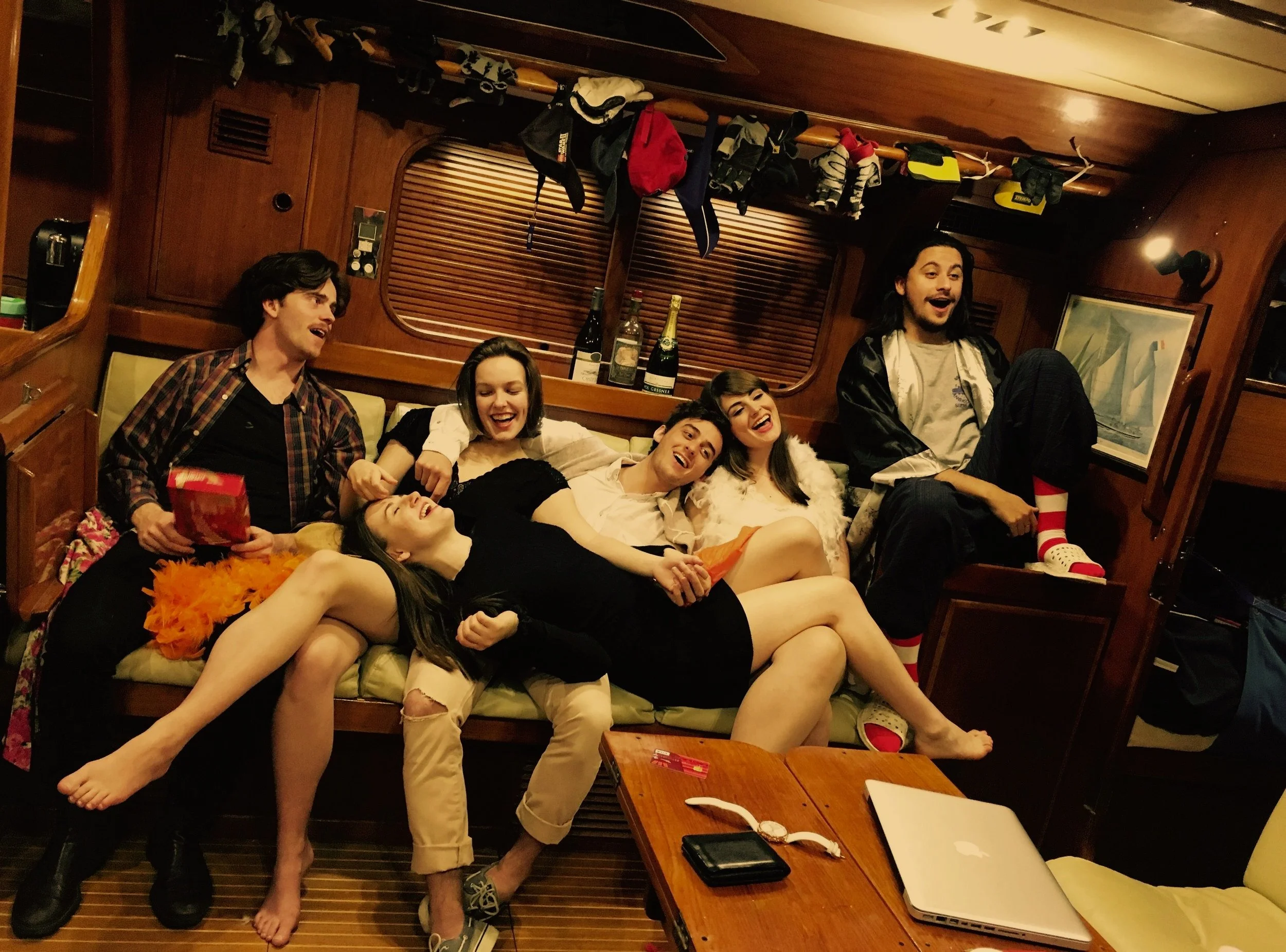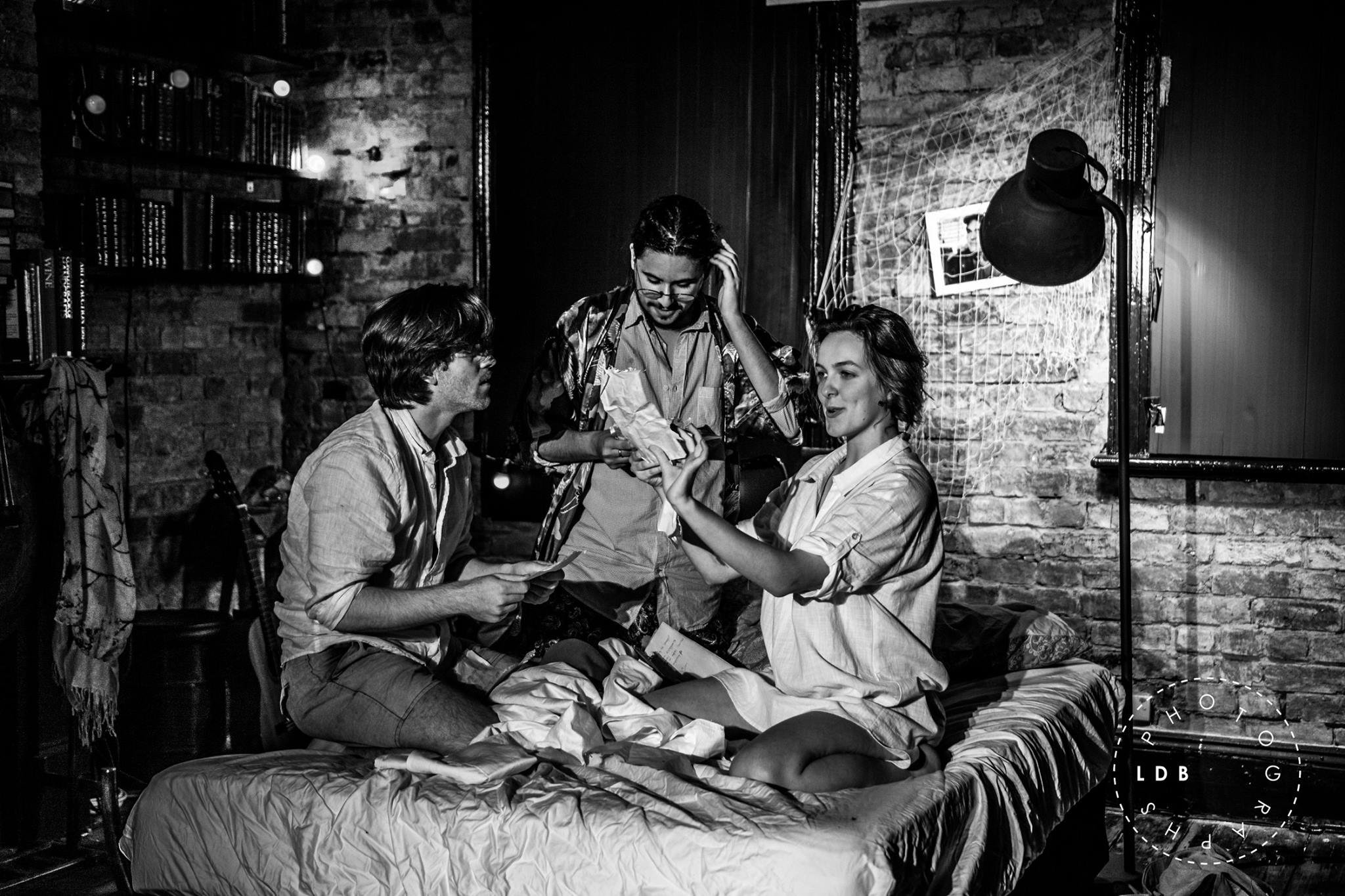
raffles on caprI
T H E M U S I C A L P R O D U C T I O N
presented by
B A L L O O N H E A D T H E A T R E
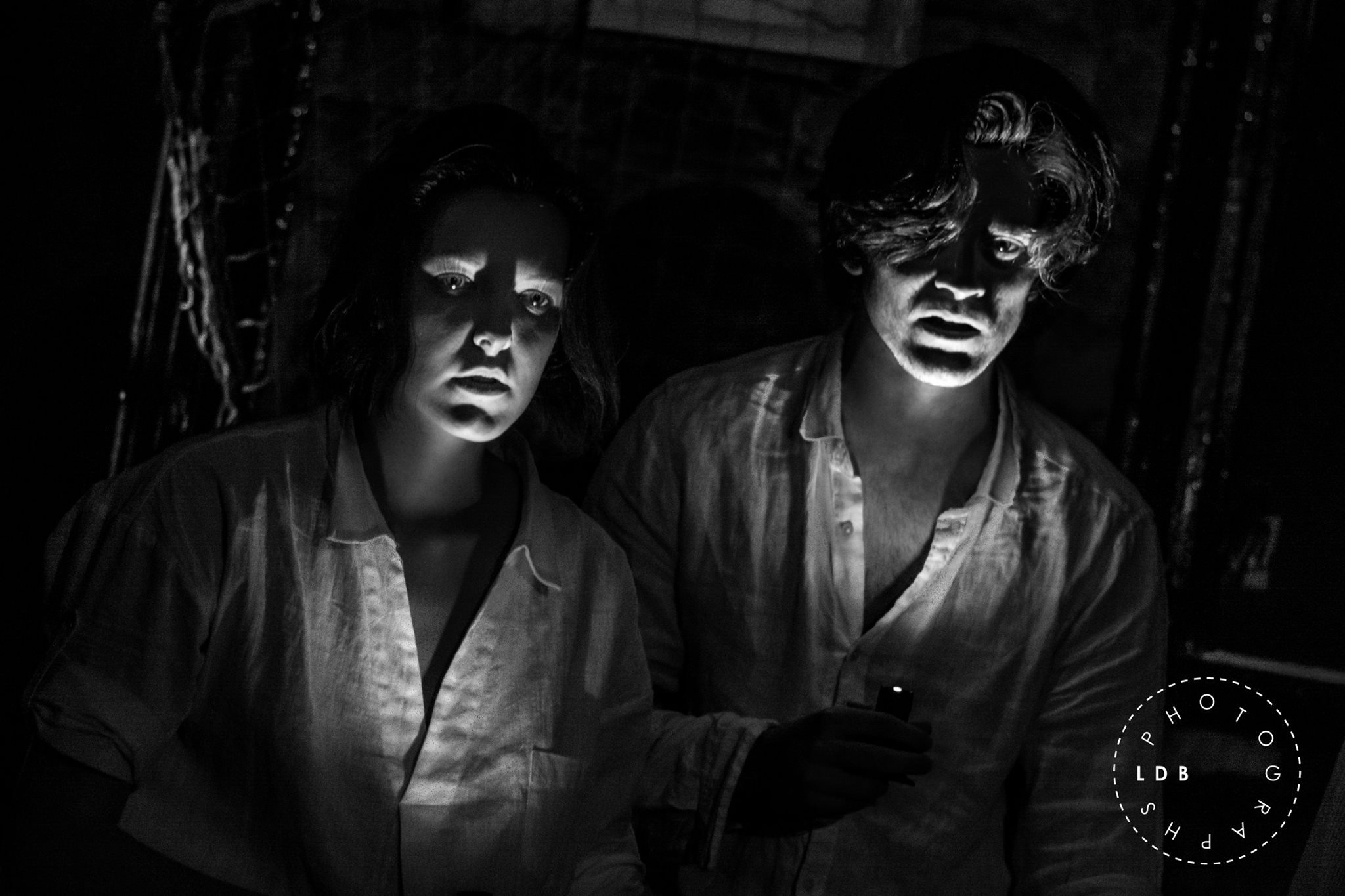
“spellbinding”
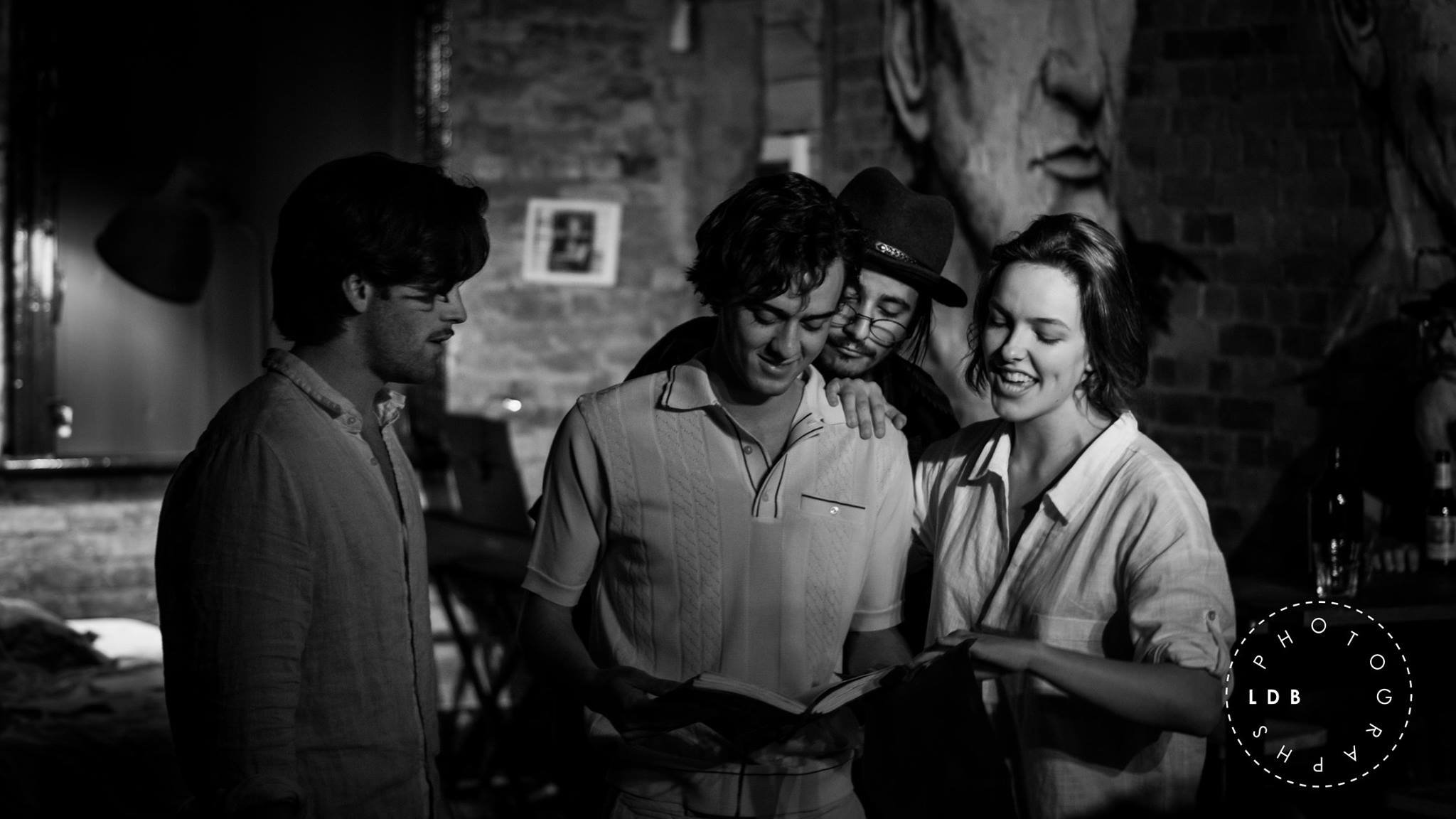
psychedelic trips, love letters, young ambition, friendship, Skype.
You name it, it’s got it.”
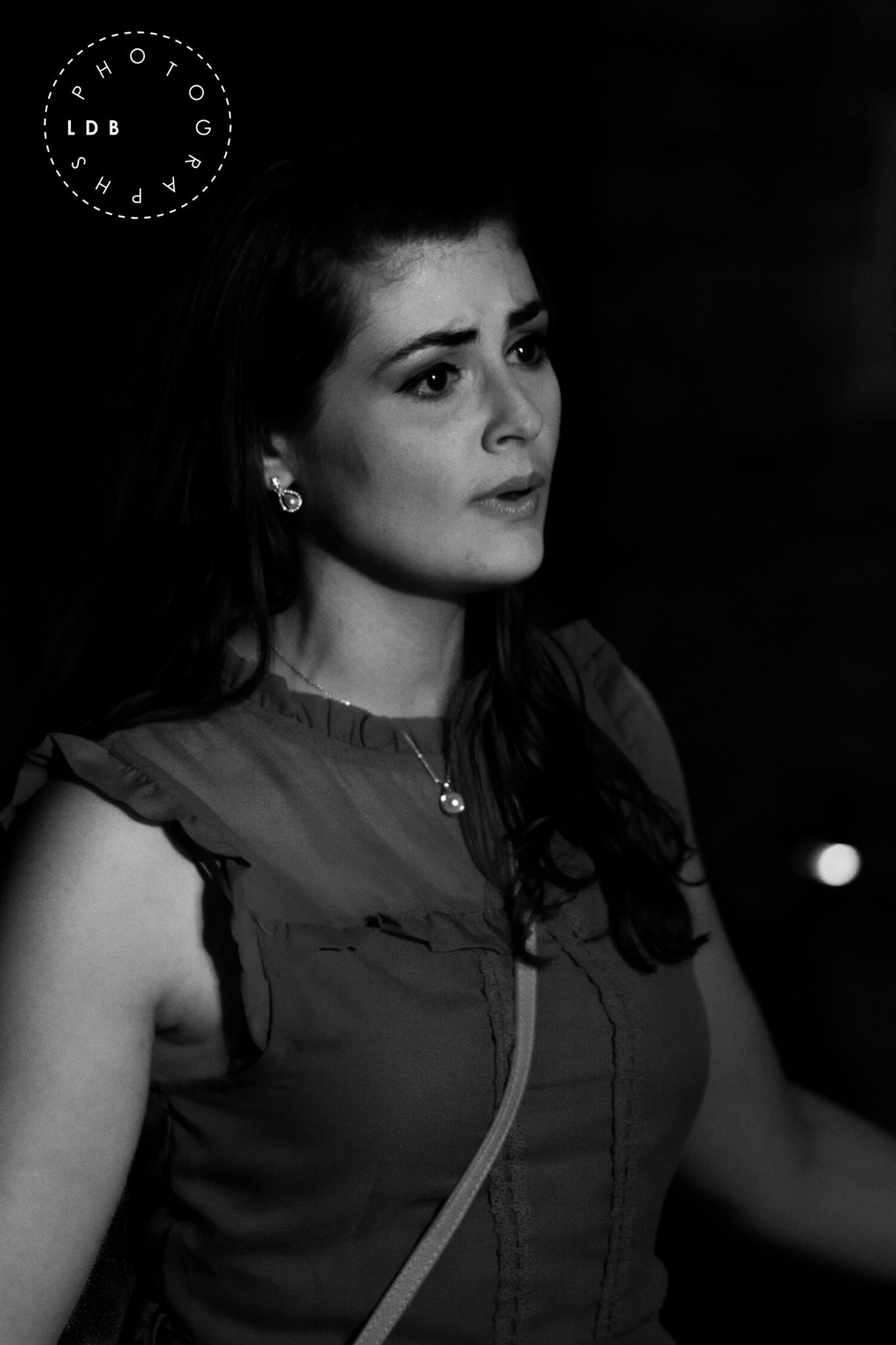

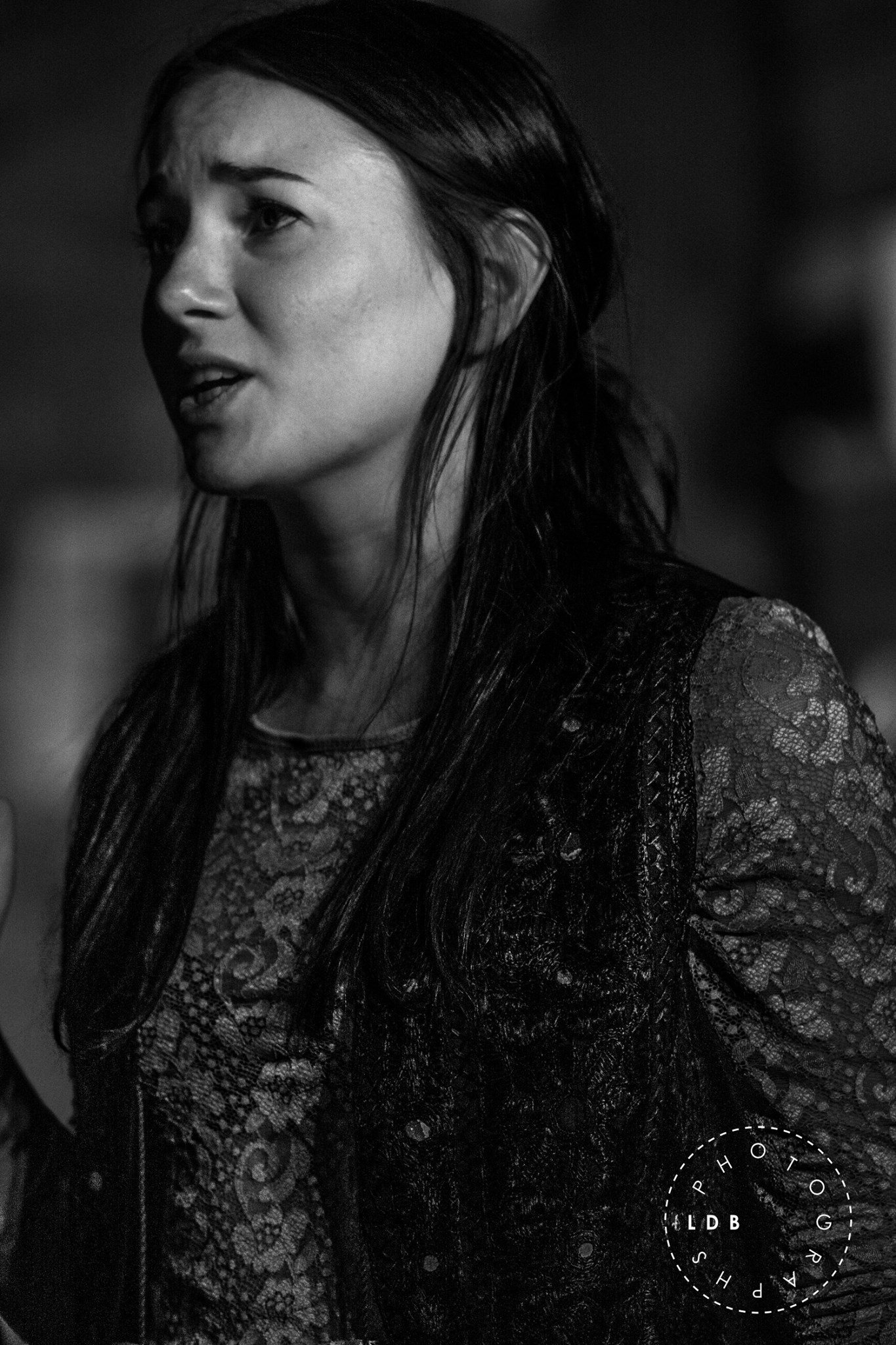
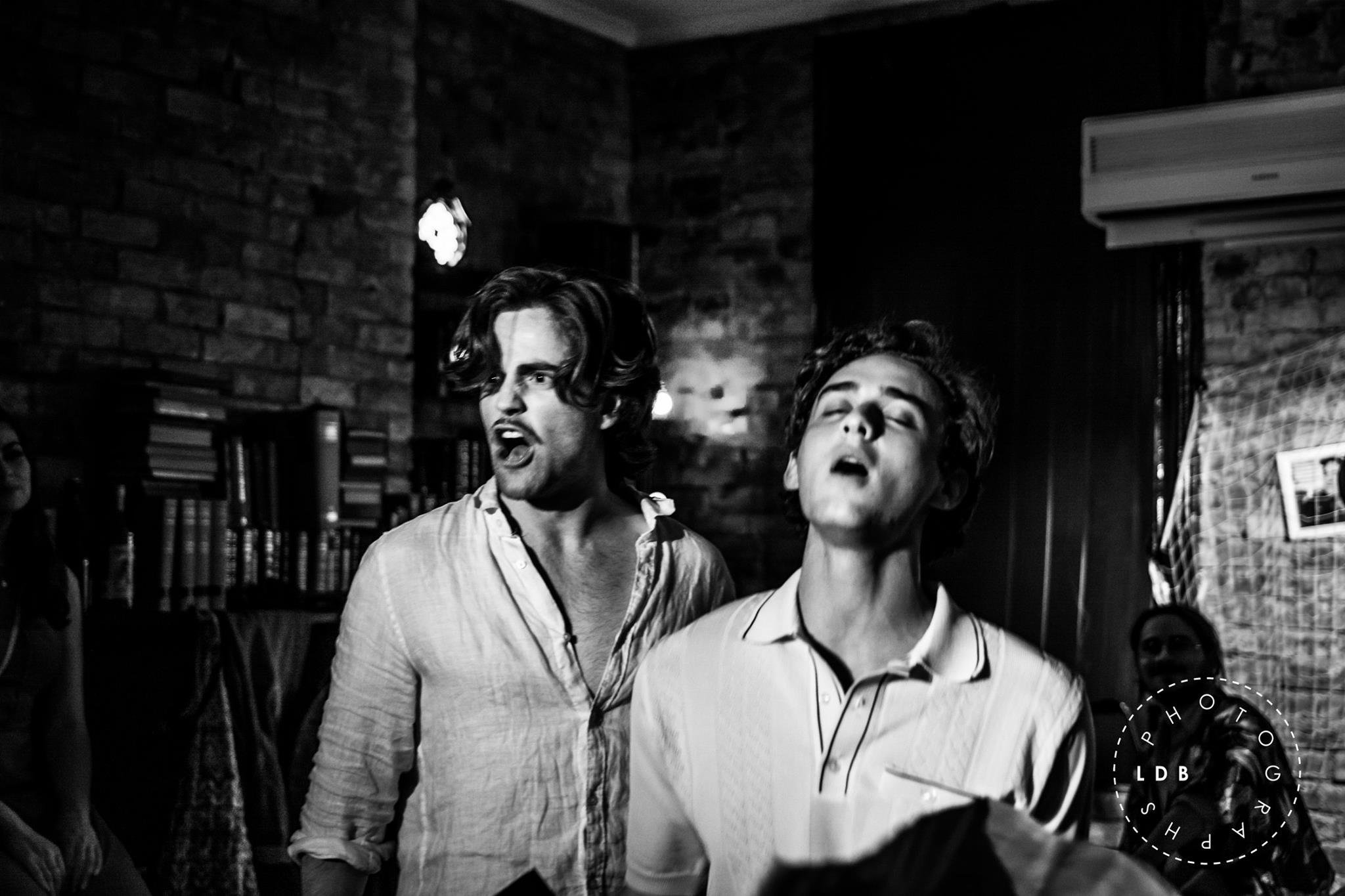
Premiered on 12th November 2016
S TO P 1 7 F I T Z R O Y M E L B O U R N E
Director SEREN OROSZVARY
Assistant Director | Producer AMELIA BURKE
Musical Director BENJAMIN PROVEST
Assistant Musical Director | Accompanist OLIVER POWELL
Lighting Designer REMY CHADWICK
Publicity Manager | Designer DYLAN HARRIS
Publicity Assistant JOSH O'SULLIVAN
Producer | Production Manager AMELIA BURKE, BALLOON HEAD THEATRE
Production Assistant HOLLY RICE
Technical Manager PAULA GROVER JOHNSON
Stage Managers BEN SYMON AND LIAM SMITH
Props Managers HOLLY RICE and JOSH O'SULLIVAN
Lighting and Sound Operators PAULA GROVER JOHNSON and REMY CHADWICK
Photos LACHLAN BROWN @ LDB PHOTOGRAPHS
Video PETER DANASTASIO
Supported by UNION HOUSE THEATRE and UMSU
R E V I E W by J I M T H O M A S
November 2016
Fitzroy, Melbourne
'Raffles on Capri' is a musical set in the cabin of an old yacht by the same name, docked on the river Seine in Paris. And yet the world of the story created by young writer and director Seren Oroszvary expands far beyond the cramped space, both spatially and temporally. The production is a confluence of upper and lowercase case R Romantic narrative, tragedy and dreamscape.
It is scored and largely inspired by the music of 'Benny and the Dukes', Triple J Unearthed stars from the Gold Coast. They are described as a synthesis of sound between the Cat Empire, Jason Mraz and Maroon 5. I would only add that their sound is complex and in many ways original, written for an orchestra rather than a typical three piece band, and thematically wouldn't be out of place in an epic narrative. It is charged with desire, violence, tragedy, hope and struggle.
The story itself; four friends - Piper, MJ, Toby, Oskar are on a gap year holiday in Paris, staying on board the yacht 'Raffles on Capri', a weathered keepsake of Piper’s family. They are in their early twenties and struggling to grasp onto fragile and nascent futures, while nauseously avoiding or repressing mistakes of the past.
Several love triangles fracture and thwart the group’s best intentions, complicating irreparably the unstable friendships. MJ and Oskar are currently dating to the angst of Piper, Oskar’s ex-girlfriend. MJ develops feelings for Toby, who in turn pines after a girlfriend that is depicted as a reductive and abstract figure back 'home' which is impeding his enjoyment of the immediate moment.
The plot is catalysed by two texts in the play. These are Piper’s journal and a mysterious binder the friends discover hidden on the boat, which is full of love letters from 1968.
The various hopeful and failed romances in the play are shadowed by the letters in the mysterious binder, a prop that also seems to mimic Piper’s journal in terms of thematic content. The love letters in the old binder are all signed ‘Jim' addressed to ‘Annie', and tell the story of a tragic romance between an Australian tourist and a Parisian jazz artist, whereas in Piper’s journal we discover a tableau of her unresolved feelings for Oskar as well as her fevered dreams of becoming a published journalist in the future.
Oskar, MJ and Toby become obsessed with the letters, which seem to promise explanations or expressions of their own tumultuous emotional states. They literally bring Annie and Jim to life in their progressively more frantic imagining. This occurs in an initially playful moment. Dragging Jim, played by actor Tom Kantor, onto the stage, Toby, played by Kareem El-Ansary, sets him into the posture, like moving a mannequin, that he feels Jim represents - the traditional, charming suitor, bowler hat on head, with bottle of wine in one hand and rose in the other.
MJ, played by actress Catherine Ward, ridicules this, posturing Jim as a more dangerous, exciting lover-boy, and Oskar, played by Charlie Craig, rejects both interpretations, citing the letters as metaphor for Jim's political passions regarding his contemporary Paris. The letters are dated 1968 and culminate in the May student riots.
Clearly, Jim and his phantasmic desire of Annie shadows the deeper desires of Oskar, MJ and Toby. Toby is traditional, waiting for his woman at home; MJ desires sexual adventure and exploration; while Oskar treats sex and romance with arrogant indifference and dreams of higher conquests in the political world.
Soon, Jim and Annie are infused with more power and complexity and they both undergo a sort of Pinocchio 'real boy' moment when they find their own voices and autonomy, making their real history and the imagined reality of the three friends ambiguous.
Ingenious choreography; for example, the ghostly, imagined Jim mirroring the movement of Oskar while Oskar makes the same mistakes with Piper as Jim did with Annie - is but one of the various and intricate doublings that permeate the play.
The layers of the dream deepen when we consider that Piper is barely present in the cabin on the Raffles of Capri. Furthermore, Oskar, MJ and Toby all wear similar Pyjamas - a light cotton shirt and shorts - whereas Piper is always fully dressed. Indeed, the pyjamas of the three friends almost seem to resemble the attire of patients in a hospital.
Scenes in which characters repeat, without thinking, what Piper is saying, or the essence of her words, imply further that perhaps the inhabitants of the cabin of the 'Raffles of Capri' are just as imaginary as Jim and Annie. Thus, a metaphor of a metaphor ensues: Piper imagines Oskar, Toby and MJ to express her troubled mental state, who in turn imagines Jim and Annie in an attempt to resolve their own frantic psyches. I would even suggest that Oskar resembles the critical, moral super-ego, MJ the wild and compassionate id and Toby the reluctant and repressive ego. Thus, the 'cabin' represents Pipers unconscious mind. Either way, Oroszvary leaves us in no doubt of the difficulty of navigating sexual desire and friendship simultaneously, and the central role that trust takes in expressing, fluently, oneself.
All in all, this play has so much more to offer than what is possible to articulate when the stage is removed. The cast possess freakish talent, and Tom Kantor as Jim is a standout among these future stars, for both his incredible register and stage presence.
Raffles on Capri is not one to miss, and I’m optimistic it will return down the track. It somehow squeezes a satisfying arc and compelling drama into only one hour. This is a powerful play, and I look forward to Oroszvary's next project.
2 0 1 6 T R A I L E R
C A S T
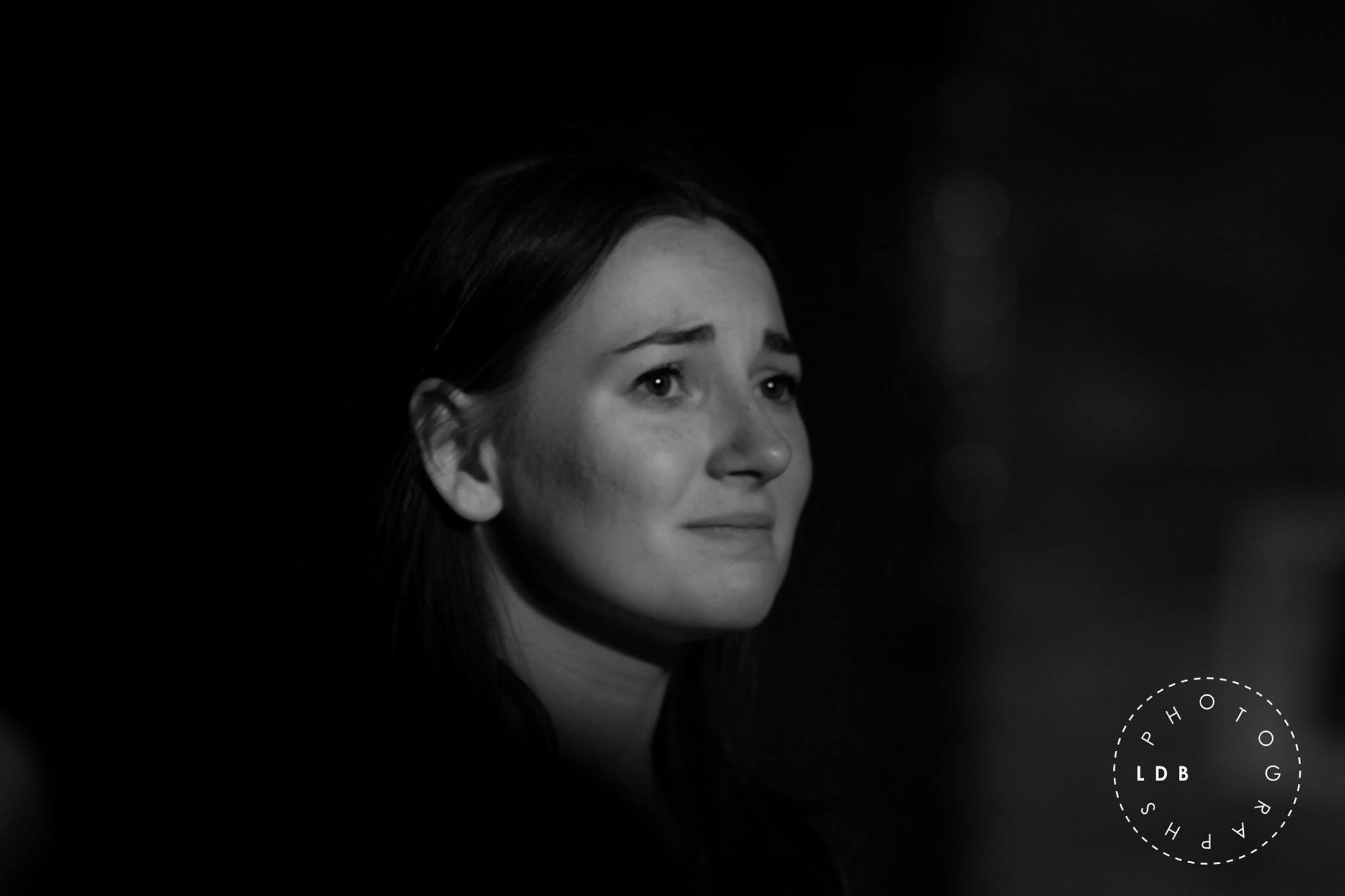
Piper GEORGIE PENDER

Jim TOM KANTOR
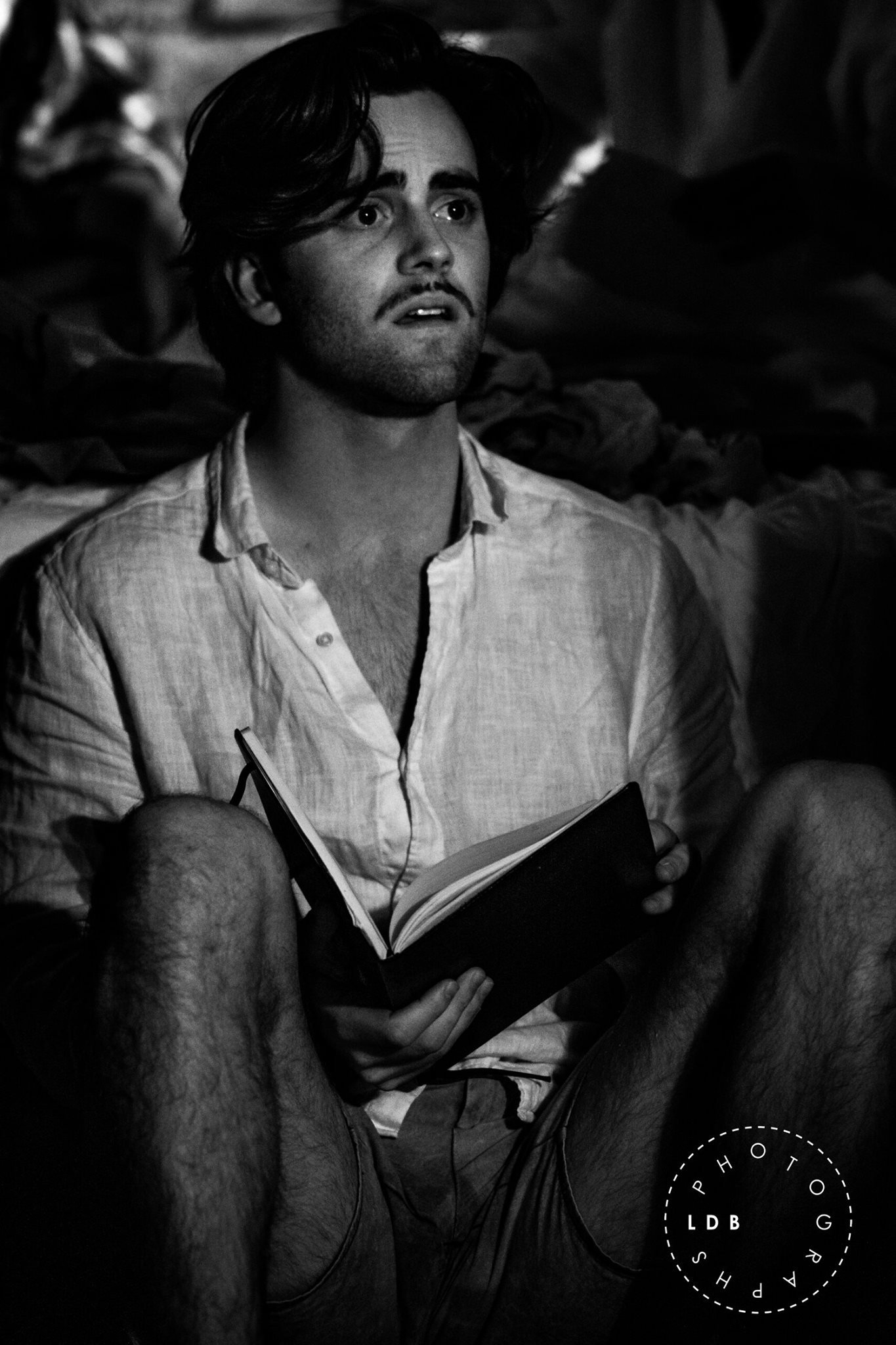
Oskar CHARLIE CRAIG
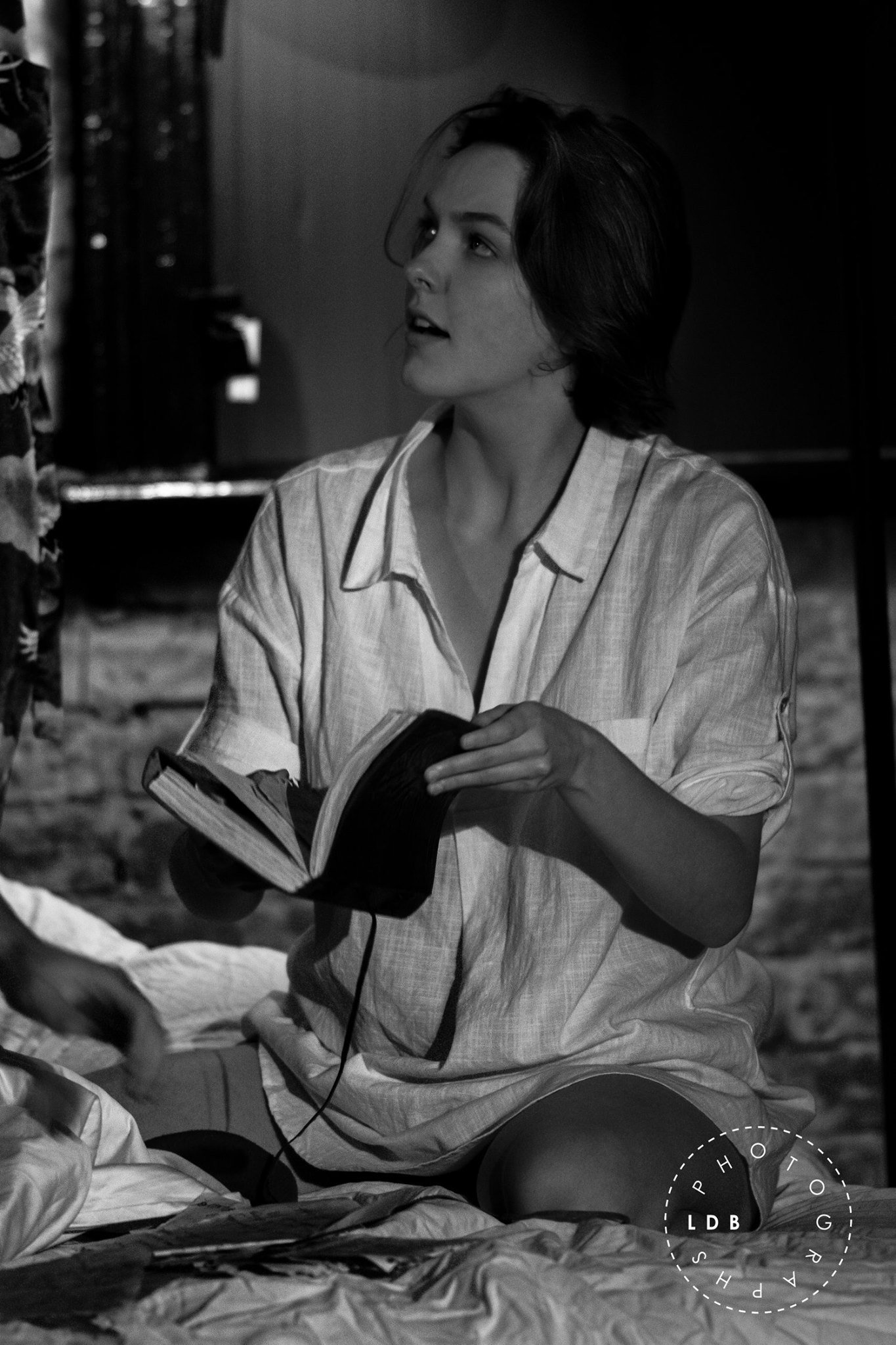
MJ CATHERINE WARD
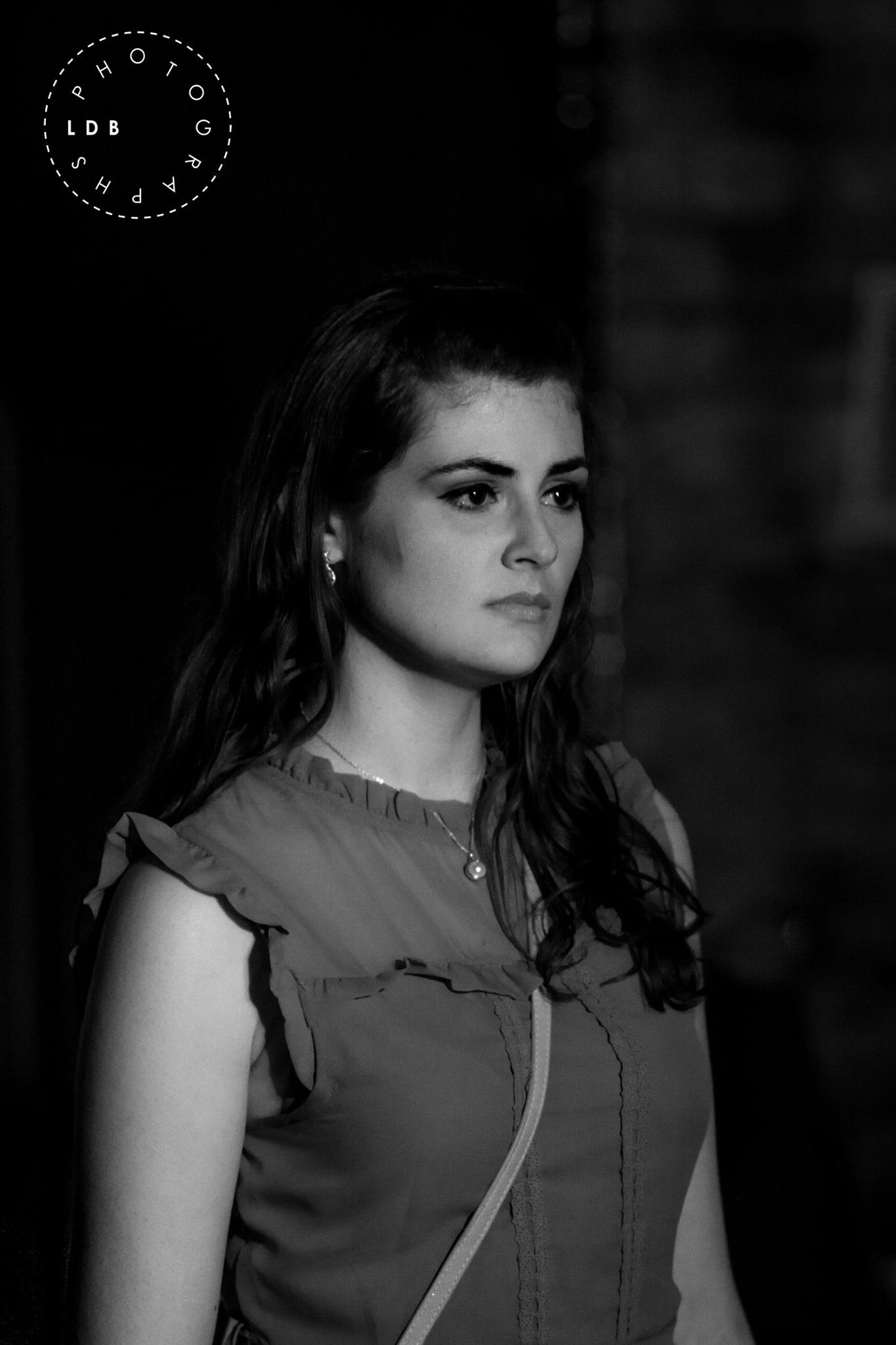
Annie KELLY BURKE

Toby KAREEM EL-ANSARY
